NK Chats To….
Our Author Interviews and Guest Posts.
Our Author Interviews and Guest Posts.
I’m happy to be welcoming Emily Harvale to Novel Kicks today and the blog tour for her new Christmas themed novel, Christmas Secrets in Snowflake Cove.
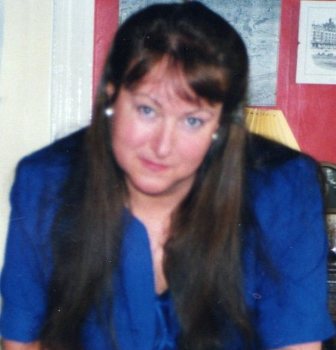
Christmas is a time for family and friends, miracles and magic, falling snow and roaring fires, fun, laughter and festive feasts. In Snowflake Cove, it’s also a time for secrets to be revealed…
Evie Starr is hoping for more than a sprinkling of magic this Christmas. The family-run Snowflake Inn is virtually empty and the Starr’s financial future isn’t looking bright. But Evie’s gran, Jessie has a secret that might help.
Enigmatic, Zachary Thorn is every woman’s dream. He’s also ex-SAS, so his secrets are classified. The Christmas Special of his feel-good, TV show is set in Michaelmas Bay – until a phone call means he’s spending Christmas in nearby Snowflake Cove.
Evie’s best friend, Juniper thinks boyfriend Darren has a secret. Evie knows he does. And Evie’s niece, Raven is hiding feelings for Juniper’s brother – who has a secret crush of his own.
But the biggest secret in Snowflake Cove is the identity of Raven’s dad.
With snow falling thick and fast and secrets being revealed one after another, will everyone be snuggling up by the fire on Christmas Eve, or are some secrets best kept hidden…?
Hello Emily, it’s lovely to welcome you to Novel Kicks today. Your book is called Christmas Secrets in Snowflake Cove. Can you tell me a bit about it and what inspired the story.
Hello Laura, it’s great to be here. Yes, my new book, Christmas Secrets in Snowflake Cove is about 34-year-old Evie Starr and her family. Evie is single and lives in the family-run, Snowflake Inn with her parents and her gran. The book is set during the week leading up to Christmas Day and Evie’s 15-year-old niece, Raven is also staying for the holidays. The Starrs are struggling financially and Evie is hoping to persuade TV show host, Zachary Thorn to give the inn a plug during his live, Christmas Special. His show is being filmed nearby, but what Evie doesn’t know is that her gran, Jessie has a secret and when Jessie makes a phone call, it changes everyone’s plans. There are also several others with secrets in the tiny village of Snowflake Cove and one of the biggest secrets is the identity of Raven’s dad. With snow blanketing the village and secrets being revealed, it’s not going to be the quiet, family Christmas the Starrs were expecting, but it’s going to be one that changes people’s lives. And Evie may just get what she was hoping for this Christmas.
As to what inspired the story, I’m not really sure. I write a Christmas book each year and when it came time to write, Evie appeared and told me her story.
 Did you plan much before writing this novel? How much planning do you feel is needed?
Did you plan much before writing this novel? How much planning do you feel is needed?
I never plan my novels. Lots of people do, I know, but that simply doesn’t work for me. I firmly believe there is no right or wrong way to write a novel. I do what feels right for me. A character pops up with an idea and I sit and type it. By the end of the first draft I know my characters well, and I do make notes about them along the way. Then I write a second draft. Sometimes I ‘plan’ an event or the ending – but that doesn’t always work out as I expect.
What elements do you feel make up good characters?
Characters need to be believable. No one is perfect, so, like us, characters can have foibles. They should have a ‘strong voice’ – but that doesn’t mean they need to be strong. Sometimes the character with the biggest weakness is the most memorable. They need to be true to themselves. Doing something completely out of character should be as much of a shock to them, as it is to the reader.
When you came to edit, did you wait to have a full draft. How did you approach the editing (a chapter at a time?)
I always edit as I write. I’ll finish a few chapters then the following day I’ll read them through and edit them before continuing. I like doing that because it gets me back into the flow of the story. Once I’ve finished the first draft, half my edits are done. I then read it through. Leave it. Read it again and edit it however many times I need to before it goes off to my editor. Then together, we may do more. I edited this book in the same way I edit all my books.
Do you believe plot or character is more important when writing a novel?
I believe they are equally important – but it depends on the novel. Some stories are plot driven, some are character driven.
Are you working on anything at the moment that you can tell me about?
I’m working on book two in this Michaelmas Bay series. It introduces new characters but we still get to spend some time with Evie and her family. All of my books can be read as standalones even if they are part of a series.
 A Rock ‘n’ Roll Lovestyle is the new novel from Kiltie Jackson and was released by WickedKilt Publishing in September 2017.
A Rock ‘n’ Roll Lovestyle is the new novel from Kiltie Jackson and was released by WickedKilt Publishing in September 2017.
I am pleased to welcome her to Novel Kicks today to chat about her writing routine, her favourite word and what Christmas song is essential.
Hi Kiltie, it’s lovely to have you in the blog today. Can you tell me about your debut novel, A Rock n’ Roll Lovestyle and what inspired it.
Thank you so much for having me here today. My novel is focused on the issues of trust, friendship and how difficult it can be to live a life in the public eye. I was inspired on this topic through a life-long love of music coupled with the knowledge of how society puts superstars and celebrities on pedestals only to derive great enjoyment from watching them fall off. I am aware this has been the case for many decades but, in the 21st century, it seems to have escalated to ridiculous levels and I’m not convinced that it is good for society as a whole.
What’s your normal writing day like? Do you have rituals when writing?
I still have a 40hr a week day job so my writing days are not as tightly structured as I would like them to be. I currently do ‘writing stuff’ – that can be anything from writing my next novel to working on my blog or doing guest posts for fellow bloggers – on Tuesday and Thursday evenings, nearly all day Saturday and Sunday afternoons. Sometimes, if my husband is working overtime, or away on a trip, I have a treat of writing all day Sunday. The only hard-set ritual is that I will only drink my coffee from a little mug I bought in Salzburg. At the time of purchase it was full of mulled wine. As much as I would like that to still be the case, I suspect my writing may not fully benefit from it.
Are you much of a planner?
I believe I am what is referred to as ‘a basher and fixer’ when it comes to writing. I have a pretty good idea in my head of how my storyline will unfold. I will know exactly how it starts, what is in the middle and how it will end. I then ‘bash’ away at the keyboard putting in the filling between these three points. Once I finish the first draft, I go back to ‘fix’ which entails editing, re-arranging, reading, re-arranging again and polishing up before sending off to my editor for him to sort out my appalling grammar and spelling.
In the rest of my day-to-day life, however, I am a total planner and everything is usually very organised.
 A big lovely welcome to author Andreas Pflüger and the blog tour for his latest novel In The Dark which was released by Head of Zeus on 2nd November.
A big lovely welcome to author Andreas Pflüger and the blog tour for his latest novel In The Dark which was released by Head of Zeus on 2nd November.
She lost her sight, but she can still see the truth…
Jenny Aaron was once part of an elite police unit tracking Germany’s most dangerous criminals. She was the best. Until it all went wrong. A disastrous mission saw her abandon a wounded colleague and then lose her sight forever.
Now, five years later, she has learnt to navigate a darkened world. But she’s still haunted by her betrayal. Why did she run?
Then she receives a call from the unit. They need her back. A prison psychologist has been brutally murdered. And the killer will only speak to one person…
Thanks to Andreas and Head of Zeus, we have an extract from In The Dark. Enjoy.
‘How old was Dr Breuer?’
The murder victim’s colleague has been crying a lot. Her voice is hoarse, dull, empty. ‘Thirty-three. Her birthday was in December. She invited all her colleagues to go to the cinema.’
‘How long had she been working in the correctional facility?’
‘Three years. We knew each other from university. Then I started here, for a bit of security. Melly always wanted her own practice. But it didn’t work. She waitressed part-time, it wasn’t a life. When the job here came up I was on at her until she applied.’
Tears start to come, but get stuck in her throat.
‘Did she like the job?’
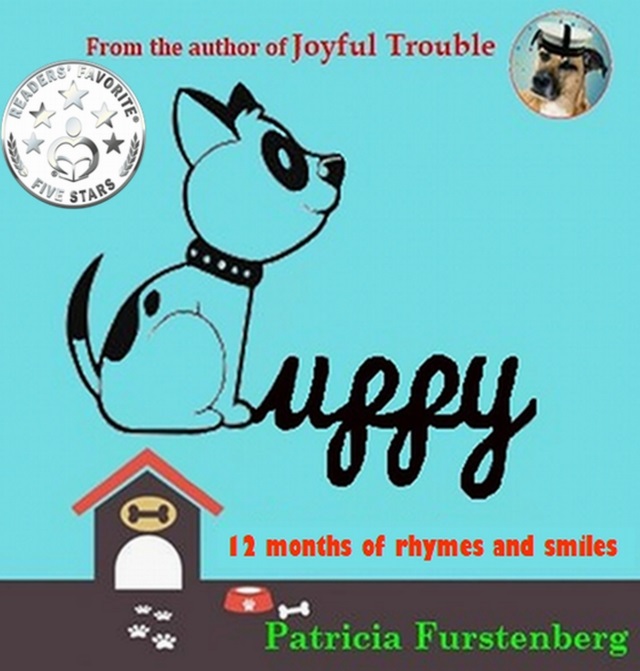 I’m happy to welcome children’s author Patricia Furstenberg to Novel Kicks. Her new book, Puppy: 12 Months of Rhymes and Smiles has been released today. Patricia joins me to chat about which characters she’d like to have around to dinner. Over to you, Patricia.
I’m happy to welcome children’s author Patricia Furstenberg to Novel Kicks. Her new book, Puppy: 12 Months of Rhymes and Smiles has been released today. Patricia joins me to chat about which characters she’d like to have around to dinner. Over to you, Patricia.
I love having a festive dinner with my family and friends! Be it Thanksgiving, Christmas or a Birthday, there is always something special about good food, in a relaxed environment, shared with the ones you love.
But what would it be like if I would invite to dinner my favorite book characters? And since Puppy will be celebrating his Grande Release in the book world today, I thought that, to celebrate him, I’ll invite six of my favorite children’s book characters to dinner.
Right next to Puppy I’ll seat Winnie-the-Pooh. I think the “silly, old bear” will be a good table companion since he is friendly and very appreciative of food, especially “hunny!” and, although forgetful, he makes a gentle pack leader. Puppy would like this, as he is used to following and sharing his meals with his “human pup”. And if Pooh happens to forget… his table manners, Puppy won’t mind at all. A.A. Milne has instilled so much love and optimist into his Winnie-the-Pooh stories and, just like Christopher Robin, so many girls and boys around the world grew up to love and rely on this bear “of very little brain”, but with a big heart.
Just to put my mind at ease I think that near Pooh I’ll be seating one of the best and most clever nannies that ever walked the pages of a book, Mary Poppins. Perhaps that P.L. Traver’s book is not that well-known, talented Julie Andrews being the one to rather instill everlasting life into this book character, but this nanny surely made many parents smile and wish they could summon her, at the drop of a hat. Besides, her typical British humor and rigor would keep any dinner plans running smoothly. Because: “just a spoonful of sugar makes the medicine go down.”
That’s why near Mary Poppins I’ll be seating Astrid Lindgren’s most beloved, yet strong-minded Pippi Longstocking. I do admire this independent little girl so very much! Her contagious optimism and passion for true values are highly commendable, as are her many talents, from cooking to fixing the house – although using unorthodox methods at times. With her freckled, contagious smile and her unusual, red plaits, Pippi has shared her passion for animals and her idealistic visions on life with so many generations of children from around the world.
I think that Pippi, although outgoing, will be a good companion to quiet but intelligent Matilda Wormwood. I’m sure that the two girls will share the same passion for travel and for stories. Roald Dahl has also given Matilda a playful side and this is what helped her overcome some of the biggest challenges headmistress Miss Trunchbull had set out for her. And just like Pippi, Matilda’s determination and optimism as well as her imagination have helped her save the day.
 J. Paul Henderson’s latest book, Larry and The Dog People was recently released by No Exit Press.
J. Paul Henderson’s latest book, Larry and The Dog People was recently released by No Exit Press.
Larry MaCabe is a man who needs people more than most… The problem for Larry is that most people have little need for him.
Larry MacCabe is a retired academic, a widower, and until a chance meeting with the administrator of a care home, also friendless. At her suggestion, he adopts a Basset Hound and joins her one Saturday at the local park. He becomes a regular visitor, and for the first time in his life the member of a gang.
While his new companions prepare for the annual Blessing of the Animals service on the Feast Day of St Francis, Larry puts the finishing touches to a conference paper he’s due to present in Jerusalem and arranges a house-sitter.
Neither the service nor his visit to Israel go to plan, and on his return Larry is charged with conspiring to blow up a church and complicity in the deaths of four people. All that stands between him and conviction is a personal injury lawyer and things for Larry aren’t looking good…
Today, J Paul Henderson shares his three favourite scenes from his latest novel.
It would be good to say that I enjoyed writing all the scenes in Larry and the Dog People, but I didn’t. It’s the same with all books: there are some scenes you have to write in a story – and these you work on the hardest – and there are scenes you want to write. Fortunately, the former are far fewer in number than the latter, and it would have been easier to pinpoint three of these than choose from the ones I enjoyed writing. That said, these are three of my favourites.
Laura’s relationship with her Aunt Elizabeth (Chapter 2)
Laura Parker grows up on a small dairy farm in Vermont, where life is uncomplicated: people milk cows and that’s about it. When she’s fifteen, the family is informed that a distant relative, Elizabeth Longtoe, has been taken into care and placed in a nursing home in nearby Brattleboro.
Elizabeth is the first cousin of Laura’s deceased grandmother, an invalid and alone in the world. To all but Laura, she remains a distant and therefore unimportant relative. Although her parents do visit occasionally – more out of duty than love – it’s Laura who heads to the nursing home on a regular basis, and a bond develops between the two women. The experience of visiting her great-aunt is also the impetus for her future career in care administration.
Elizabeth Longtoe is a kindly soul and stoical. She’s had a hard life, complicated by the fact that she married outside her race, but is accepting of its hardships and has no regrets. She’s a person who counts her blessings, no matter how few they’ve been, and she appreciates that there are others in the world worse off than her. (I’d like to think that I was Elizabeth Longtoe, but needless to say I’m not.)
The conversations between Laura and her great-aunt happen over time, but are structured as a continuous monologue. Below is an excerpt.
“Children? No, we weren’t blessed that way, dear. It wasn’t meant to be. And maybe that was a good thing, because there were times when we couldn’t even afford to put food in our own mouths. I know what you’re thinking, though. You’re thinking that if we’d had children I wouldn’t be living here now, aren’t you? You’re thinking that I’d be living with them. No, I wouldn’t have wanted that, dear. You don’t give life to a person just so you can suck it out of them when you get old. They’d have lives of their own to live, children of their own to look after and there’s no way I’d have wanted to burden them. I’m an invalid, Laura. It wouldn’t have been fair.”
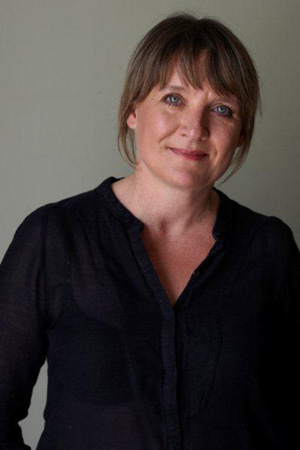 Jane Sanderson is the author of This Much is True which was released in June 2017.
Jane Sanderson is the author of This Much is True which was released in June 2017.
After decades in a deeply unhappy marriage, Annie Doyle can barely bring herself to care that her husband Vince is finally about to die.
But as the family gathers to see out his final days, Vince utters a single word that will change everyone’s lives completely:
‘Martha.’
Who is Martha? And why is Annie so quick to dismiss the mention of her name?
As Annie’s long-held secrets start to emerge, the lives of everyone she holds dear will be changed forever…
Hello Jane, thank you so much for joining me today and congratulations on the release of your book, This Much is True. What was your typical writing day like when writing this book?
Ah, if only there was any such thing. Every day seems to be different, depending on what other demands there are on my time. I work at a desk in my bedroom at home, and am easily distracted by almost everything that happens around me: dogs barking downstairs, postman knocking at the door, phone ringing, washing to be done, drying to be folded, dogs to be walked, dinner to cook … do you get the picture?! I write between all those other activities – half an hour here, an hour there – until the book gets more than halfway finished, and then I always make a priority of it, find the discipline to turn a blind eye to other things, and forge ahead to the end. On the whole, I’m probably most productive either very early in the morning, or late in the evening.
Can you tell me a little about This Much is True and what inspired the novel?
It was actually inspired by walking my dogs, here where I live, in Herefordshire. But that really was just a starting point for a story about secrets, lies, and the redemptive powers of friendship. Annie Doyle is a deceptively complex woman, whose ordinary existence hides some extraordinary truths, and who can only deal with the miseries of her past by ignoring them. I wanted Annie’s fledgling friendship with Josie and Sandra to be a catalyst for change; through their example she begins to see another way of being. Of course, I also wanted to explore the idea of secrecy in friendships too – the lines we don’t cross, the things we never tell. Annie has more to hide than most of us, but I believe we all protect our secret selves, to one extent or another.
Do you have many pages of planning and research for this book or did you just see where it took you?
I have a notebook with random memos to myself about things I mustn’t forget, but that’s all. I research as I go, and I don’t really plan at all. It sounds like a recipe for disaster, but it works.
What’s the editing process like for you – how do you approach it?
It’s a fluid process, and I edit (that is, rewrite, correct, add material) as I write, rather than at the end. I don’t do drafts – my first draft tends to be my only draft, but it will have undergone an awful lot of tweaking as it took shape. Then, of course, the manuscript goes to the editor for their input, and the copyediting stage is equally crucial to weed out the continuity errors and grammatical blunders, but on the whole I try to be as efficient as possible during the actual writing of the story. It’s my journalist’s training, I reckon – it dinned into me the importance of producing ‘clean copy’.
What elements do you feel make a good novel?
Great characters and believable dialogue. If those elements are in place, I’m happy. Plot matters – of course it does – but sometimes a great novel can actually be about very little; if the reader cares about the characters, and can hear them when they speak, then that’s the basis of a truly good read, in my view.
Do you have any writing rituals – coffee, music, silence, a specific place you need to write?
Silence, generally, and I always write at a small desk at my bedroom window, which has a beautiful view of the Brecon Beacons in the distance, but I have to keep the shutters closed because the light bleaches out my screen! Coffee and tea are essential to my day, whether I’m writing or not.
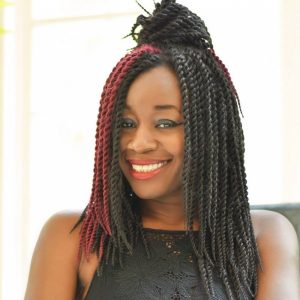 Orphan Sisters is the new novel from the fabulous, Lola Jaye and I am excited to be a part of her blog tour to celebrate the paperback release.
Orphan Sisters is the new novel from the fabulous, Lola Jaye and I am excited to be a part of her blog tour to celebrate the paperback release.
Their Nigerian parents have emigrated to England in search of a better life for their family. Nineteen Fifties London is a great adventure to the girls but not always welcoming. There are signs in windows of lodging houses warning: ‘no blacks, no dogs, no Irish’.
When tragedy strikes and the girls lose their father, their mother is unable to cope. When she fails to recover from the surprise birth of another child all three girls are sent to an orphanage. Lana is determined to keep her sisters together but when baby Tina gets adopted, she must admit their family is about to be torn apart – perhaps for ever…
Hi Lola. It’s so lovely to welcome you to Novel Kicks today. Your new novel is called Orphan Sisters. Can you tell me a little about it and what inspired you to tell this story?
Orphan Sisters is a saga spanning thirty years but primarily set in 1960’s London where three little girls were supposed to be living the dream of their immigrant parents. However, they end up living a nightmare many migrants, even today, often face. I have always been so inspired by my parents, aunties, uncles and all those who came to the UK from the former colonies in the hopes of a better life. They faced racism, hardship and were basically told to ‘go back to where you came from!‘ constantly. Having not read much on migration when it came to Nigerians, I wanted to tell their story.
What’s your typical writing day like and do you have any rituals whilst writing (silence, coffee, a specific place to write etc.)
When I’m not being distracted by endless cat pictures on the Internet, I settle down with a glass of water by my side and just write. After a couple of hours I will break and make a smoothie, watch a TV program perhaps and then start writing again. My needs are subject to change though. For example, in the UK I generally sit at my desk in my living room with the television out of sight and in silence. But in Atlanta (where I lived for two and a half years until recently) I sat in a lovely little bubble tea shop and wrote whilst the hustle and bustle didn’t seem to disturb me at all!
What challenges did you face when writing a book in a historical setting?
I tended to get deeply involved with the research. There was so much I didn’t know about the history of race in the United Kingdom. Having lived in America, I’d become immersed in the American experience, but there’s so much to learn about regarding the UK. I found myself reading and over reading my research, having to remind myself that I actually had a book to write!
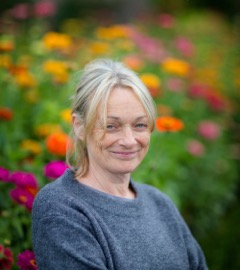 Hi Martine. I am so pleased to be welcoming you to Novel Kicks today. Would you tell us a little about your book, Narcissism for Beginners and how the idea originated?
Hi Martine. I am so pleased to be welcoming you to Novel Kicks today. Would you tell us a little about your book, Narcissism for Beginners and how the idea originated?
Hi Laura. Some years ago I became fascinated by extremely narcissistic characters and their modus operandi, particularly those who set themselves up as gurus and ‘spiritual’ leaders, and wanted to explore the effect they have on those people closest to them.
What’s your favourite word and why?
Ubiquitous. Hard to say why, it’s just a really satisfying word to say. There are very few words with that qu sound in the middle preceded and followed by the i sound, so maybe that’s it. Also, it makes you sound clever.
What’s your typical writing day like – do you have any writing rituals etc?
Unfortunately there’s no such thing as a typical writing day as my job takes up most of my time and I rarely stay in one place for longer than a week, so at the moment writing has to be done whenever and wherever I can fit it in. There’s always tea though, that’s a given, and sometimes coffee made with cream.
Did you plan much prior to writing your novel? Do you think it’s better to wait for a complete first draft before editing?
This novel has seven different narrative voices so I needed to do some planning to make sure I didn’t get into a complete muddle. I know not everyone does, but I always write a first draft in longhand from start to finish before I do any rewriting. I think it takes at least one draft to work out which story I actually want to tell.
What’s the best and most challenging thing about being a writer?
Well, the best and the most challenging are definitely not one and the same. The worst is trying to balance being a writer with earning a living; writing always seems to lose that particular fight in my experience.
But the best aspects of writing are almost endless. Writing presents an opportunity to always be learning something new, in terms of skill and technique of course, but also when it comes to researching new ideas and subjects you never even knew you were interested in. I love the start of a new project when you’re like a kitten chasing after balls of wool rolling off in all directions.

 Claire North is the author of The End of The Day which was released by Orbit in Paperback on 24th August.
Claire North is the author of The End of The Day which was released by Orbit in Paperback on 24th August.
Claire is with me today to chat about her five favourite fictional characters. Over to you, Claire.
Sam Vimes, from The Discworld Novels by Terry Pratchett
Sam Vimes starts in the gutter, and ends up more or less a superhero. By the time he’s a diplomat for the city of Ankh Morpork, he can swagger into any bar on the Disc, flick ash from his cigar, tip his helmet to the troll at the door and with a casual ‘easy, boys’ seize control of a situation by his sheer grim will and excellence.
He doesn’t have magic powers. But he is a copper. No – a copper’s copper. A policeman down to the soles of his worn-down boots, a loather of paperwork, a duke despite himself, a terrible politician and a seeker-after-of-truth/justice, no matter what gets in his way. And in Vimes, Terry Pratchett came to craft a character who’s superpower is exactly that – policeman as a magic unto itself.
Vimes is also blessed by being married to Lady Sybil Ramkin, a dragon-breeder and lady of an ancient house. It is a union that gave his character even more space to bloom, as his desire to pursue the truth of increasingly tangled and dangerous cases was pulled back from the edge of darkness by Lady Ramkin’s inevitable and necessary cry – “Don’t be ridiculous, Sam!” Separately, they were already cool characters; together they are incredible.
Lessa , from the Dragons of Pern by Anne McCaffrey
There is a great deal about Lessa that’s annoying. Arguably this is in response to provocation – having your family killed, your ancestral Hold stolen from you, hiding yourself in the kitchens of your conqueror for years while planning revenge would certainly help mould you into the headstrong bundle of rage, manipulation and exasperation that Lessa absolutely is.

Corgi, June 2012
She’s also the rider of a golden queen dragon, a great leader in the fight against the deadly Thread that rains down from Pern’s sky, and the first female character I ever read who was kick-ass excellent, and fully human, and totally indispensable. Try to put yourself in the shoes of a teenage girl who up to that time was still only really encountering books about heroic men doing heroic things while women need rescuing. Try now to imagine how your world explodes when finally – finally – you find a book where not only is the woman a flawed and brilliant character who evolves with the passage of time into someone even more awesome, but who is the irrefutable saviour of Pern despite herself and her flaws.
Lessa is far from the greatest character I’ve ever read; but as a teenage girl learning to love fantasy, her existence rocked my world.
Corwin, from the Chronicles of Amber by Roger Zelazny
Corwin is arguably a far less pleasant character to spend time with than his sprog, Merlin. However, the ambition, vengeance and self-obsession that drives Corwin in book one to do some… really rather unwise things… gives way over time to one of the most interesting and evolved mostly-heroes of fantasy. With the ability to walk through reality – all realities, all that you can ever imagine – and over time acquiring responsibility for maintaining the balance between the universe’s two conflicting poles, Order and and Chaos, Corwin is a character who defies easy description, shares his feelings minimally with the reader, while providing gently humorous narrative on all he sees.
However, like all of Zelazny’s characters, responsibility doesn’t make Corwin pompous, or bad company. Like Sam in Lord of Light – a character who essentially becomes the Buddha in his quest to tear the technology of incarnation out of elitist hands – it’s excellent, go read – Corwin will spend a great deal of time enjoying whiskey and a cigarette while musing over the nature of existence, before wrapping up debate with a merry ‘that didn’t solve anything, but it was better than being impaled by a mad unicorn’. Huge ideas are gently caressed beneath the surface of Corwin’s dry wit, and Zelazny’s casually brilliant imagination.

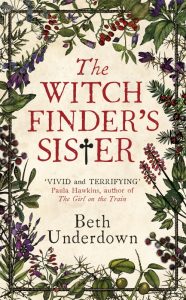 Beth Underdown’s debut novel, The Witchfinder’s Sister was released by Viking in March 2017.
Beth Underdown’s debut novel, The Witchfinder’s Sister was released by Viking in March 2017.
Beth is with me today to talk about her approach to the research process and how important it is to find your own system. Over to you, Beth….
When I started my first novel, I didn’t have a clue what I was up to. I floundered about, making a start on this scene or that subplot, interspersing writing with what began as a fairly scatter-gun approach to research – one week a book of sermons, the next an illustrated herbal, the next a broad political survey of the whole century in which my story was set. As the book progressed, my approach to research changed, and became about looking for answers to specific questions the story had raised. But to start with, my research strategy might best have been described as random.
I like to think that now, starting my second novel, some of what I learned with the first one will save me a bit of time and heartache. I’m hoping, for instance, that I’ve sharpened my instinct for which scenes and which subplots will be needed in this next book – which should be developed, and which should be allowed to die quietly before they embarrass me any further.
But what hasn’t changed, I’m realising, is that scatter-gun approach to the first weeks of research. As it turns out, scatter-gun is what I need.
Last year, after finishing my first novel, I breathed a sigh of relief. Having made it through months of active writing, during which I’d been afraid to read other people’s fiction in case I lost a grip on the voice of my own narrator, suddenly I was free. I started to read some of the great fiction that was coming out at the time: The Essex Serpent. The North Water. His Bloody Project. I also got a teaching job, so I started to read and reread a bunch of classics, to help prepare my seminars: Madame Bovary. The Hound of the Baskervilles. The Talented Mr Ripley. But despite these literary riches, I felt a bit bereft, and I didn’t know why. I was reading everything (or as much of everything as I had hours in the day to accommodate). So why did it feel like something was missing?
What I wasn’t reading, I see now, were my scatter-gun books. My weird books. Books published in the sixties and since forgotten. Books consigned to the dustiest end of the library or the forsaken corner of a second-hand bookshop.
 A huge massive hello to e. lockhart (Emily) who is joining me today. Her new novel, Genuine Fraud was released by Hot Key Books on 5th September.
A huge massive hello to e. lockhart (Emily) who is joining me today. Her new novel, Genuine Fraud was released by Hot Key Books on 5th September.
About Genuine Fraud:
Imogen is a runaway heiress, an orphan, a cook, and a cheat.
Jule is a fighter, a social chameleon, and an athlete.
An intense friendship. A disappearance. A murder, or maybe two.
A bad romance, or maybe three.
Blunt objects, disguises, blood, and chocolate. The American dream,
superheroes, spies, and villains.
A girl who refuses to give people what they want from her.
A girl who refuses to be the person she once was.
Welcome to Novel Kicks. I am so excited to have you as our guest today. What is your typical writing day like?
Thanks for having me! I sit down to work around 8:30 in my home office. The cat sits with me. Then I fret and bleed and feel sick and feel impressed with myself and despair and have flashes of inspiration.
Your new book is called Genuine Fraud. What is the premise and what inspired it?
It’s about two young women who look enough alike to share a passport. It was inspired by various superhero origin stories, the Patricia Highsmith novel The Talented Mr. Ripley, Victorian orphan stories including Vanity Fair and Great Expectations, action hero movies and my desire to write a feminist antiheroine story. Its a story that’s in conversation with all of those. And it’s a tale told backwards.
 What are the challenges of writing a young adult novel?
What are the challenges of writing a young adult novel?
YA readers love their books passionately, and tolerate neither bulls—t nor boredom. That’s an exacting and super-responsive audience to have.
What elements do you feel are important?
I try to get the inside of my head onto the page in the shape of a story that will be entertaining and emotional to read. I try to offer my brain up to the reader.
How do you approach the editing process?
The editor pushes me to be my best self. She pushes really hard and I can’t say I enjoy it. I revise my books about twenty times. Maybe more.
What is your process like when starting a novel (from idea to final draft,) and has it changed since writing your first book?
With Genuine Fraud, because it is told backwards, I had to lay the plot out ahead of time. Then I wrote the book from the last chapter to the first — in reverse order to how people will experience it. But after that came the twenty revisions.
 I am very happy to be welcoming Jon Rance to Novel Kicks today and the blog tour for his new novel, About Us.
I am very happy to be welcoming Jon Rance to Novel Kicks today and the blog tour for his new novel, About Us.
Rosie Willis isn’t happy. Her once perfect marriage to husband, Pete, is falling apart, her mother is dying, and her three children are starting to feel like strangers.
At forty she feels like she’s stuck, but then she meets handsome widower, Mark Hornby, at the school gates and he makes her feel alive again. As she drifts further from Pete, she gets closer to Mark, but approaching Christmas she realises she needs to try to save her marriage and keep her family together.
Despite her feelings, she can’t have an affair. Unfortunately, Pete has news of his own that throws everything into doubt. Rosie must choose a new life.
There’s Pete, Mark, or going it alone. It isn’t easy when you’re forty, when you have three kids, when you feel past it, when your mother is dying, but life isn’t meant to be easy.
Hi Jon, thank you very much for joining me today. Congratulations on your new book, About Us. Can you tell me a little about it and how the idea originated?
Hello! It’s a pleasure to be here and yes, of course, I’d love to tell you all about my new novel, About Us. About Us, is the story of Rosie Willis and her husband, Pete. It’s the story of they meet, fall in love, get married, have children, and then how it all falls apart. It’s set over twenty years from university until their early forties. It’s a dramatic romantic comedy.
The idea evolved over time – as they tend to do. After my last novel, Dan And Nat Got Married, I knew I wanted to write something a big different and I had this idea for a novel. Originally it was going to be a story of a marriage from both sides, but then I decided to write the whole thing from Rosie’s perspective and that’s when it really took off.
 What’s your writing routine like (where do you like to write, do you need silence etc.) How has your routine changed since writing your first book?
What’s your writing routine like (where do you like to write, do you need silence etc.) How has your routine changed since writing your first book?
Well now I have both children in school full-time I actually have a routine! When I wrote, This Thirtysomething Life, I was a stay at home dad so writing was done around that. I squeezed it in when I could. Now I sit at my desk at around 8:30-9am and work in silence until about 1-2pm and just write. Sometimes I listen to music and sometimes I don’t. I drink tea, coffee, try and eat healthy snacks and always have a break for lunch!
How do you approach writing a novel? Planner or a Panster?
I was thinking about this the other day. I always thought of myself as a bad planner, but I realised that I do plan, but generally over long periods of time. I usually start the ideas process maybe a year before I start writing a novel. I jot down ideas, characters, plotlines etc. so usually by the time I start writing, I have a decent idea what I’m doing. I don’t write extensive notes, but I do have whole pages on characters, storylines etc.
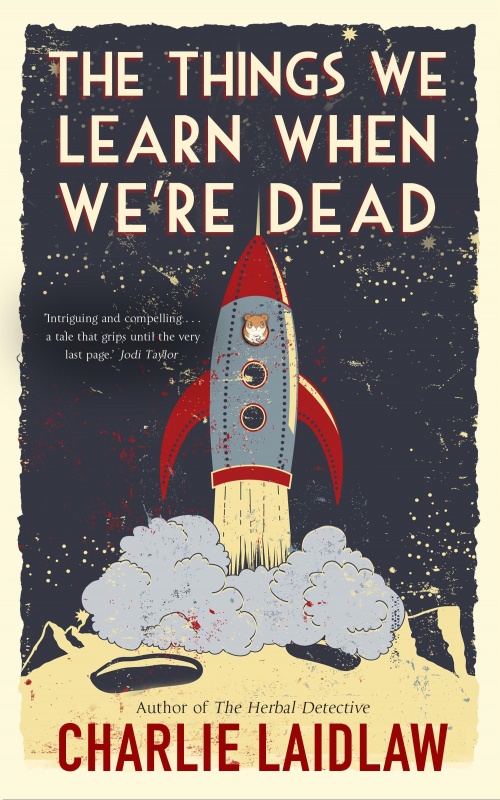 A big welcome to Charlie Laidlaw. His book, The Things We Learn When We’re Dead was released by Accent Press on 30th June 2017.
A big welcome to Charlie Laidlaw. His book, The Things We Learn When We’re Dead was released by Accent Press on 30th June 2017.
About The Things We Learn When We’re Dead…
The Hitchhikers Guide to the Galaxy meets The Lovely Bones in this surrealist, sci-fi comedy.
When Lorna is run over, she wakes in a hospital in which her nurse looks like a young Sean Connery, she is served wine for supper, and everyone avoids her questions.
It soon transpires that she is in Heaven, or on HVN. Because HVN is a lost, dysfunctional spaceship, and God the aging hippy captain.
She seems to be there by accident …Or does God have a higher purpose after all?
He joins me today to talk about the inspiration behind his new novel. Over to you, Charlie…
All books start with a beginning.
For the reader, that beginning is page one.
For the author, the beginning comes much earlier.
For me, that came on a train from Edinburgh to London. For no reason whatsoever, the idea for the book came into my head.
It was an apt place to have that beginning because, being a civilised place, Edinburgh is the only city in the world to have named its main railway station after a book.
Part of the inspiration was a quote from the Roman emperor and philosopher Marcus Aurelius Antoninus who wrote that “our life is what our thoughts make it.”
I’d always thought that life is what happens to you – all things good or bad: the people you meet, the things you do.
But, from a different perspective, everything about life is also about memory. We can’t do our jobs if we can’t remember how to do them; we can’t love people if we’ve forgotten who they are. It is our thoughts that shape us.
It’s the only train journey I’ve ever been on where I hoped for signal failure, or for spontaneous industrial action. I could have sat on that train for another five hours.
When I got home, I wrote the first chapter and the last chapter. The first chapter has changed out of all recognition, but the last chapter is still pretty much the same.
The story I’d come up was the story of Lorna Love, and the book follows her as she grows up. She’s feisty and funny, but also damaged and conflicted. More than anything, she’s someone fairly ordinary who you could meet on any street.
The story is about the small decisions that she makes, and of their unintended consequences. It’s also how, apparently killed in a road accident on her way back from a dinner party, she comes to look back at her life and rearrange her memories in a different pattern.
By the end of the book, when her memorises have come back to her, she can see herself in a new light. Her old memories, rearranged in a new way, make her a different person. (She’s not dead, by the way…and hence the book’s title).
It’s about being given a second chance and that is, perhaps, one of the most universal and recurring theme in literature.
 Maggie’s Kitchen is the latest novel from Caroline Beecham (which is due to be released by Ebury Press on 27th July 2017) and I am happy to be welcoming her to Novel Kicks today.
Maggie’s Kitchen is the latest novel from Caroline Beecham (which is due to be released by Ebury Press on 27th July 2017) and I am happy to be welcoming her to Novel Kicks today.
When the British Ministry of Food urgently calls for the opening of restaurants to feed tired and hungry Londoners during WWII, aspiring cook Maggie Johnson seems close to realising a long-held dream. After overcoming a tangle of red tape, Maggie’s Kitchen finally opens its doors to the public and Maggie finds that she has an unexpected problem – her restaurant is too popular, and there’s not enough food to go round.
Then Maggie takes twelve-year-old street urchin Robbie under her wing and, through him, is introduced to a dashing Polish refugee, digging for victory on London’s allotments. Between them they will have to break the rules in order to put food on the table, and, perhaps, find love into the bargain…
Thank you for joining me today, Caroline. Can you tell me a little about your book, Maggie’s Kitchen and what inspired it?
‘Maggie’s Kitchen’ is a novel that follows the fortunes of Maggie Johnson as she sets up and runs a British Restaurant in London during the Second World War. The story focuses on the relationships that she develops with the community and in particular with Robbie, a twelve-year-old runaway, and Janek, a Polish refugee. Together they struggle through government red-tape to open the restaurant and then battle food shortages and community crisis to keep their doors open.
The novel is inspired by real events and I was intrigued by the fact these restaurants were created to help with the food shortages during the war. It seemed timely to write a story about them given the renewed interest in ‘paddock-to-plate’ and ‘nose-to-tail’ eating and our obsession with food.
The novel includes excerpts from the original Ministry of Food’s War Cookery Leaflets together with recipes that have been updated to suit contemporary tastes. The story is ultimately about hope and finding courage in the most unlikely of places.
What are the challenges of writing historical fiction?
Being inspired to write fiction based on real events and/or people and their achievements feels like a real privilege but there is also the danger of becoming too obsessed with your research and wanting to include everything in your book.
The key is to recognise how much detail to use to create the setting and as signposts to make the era authentic, but also remember you are creating a fictional work that needs to be real for your characters.
I’ve learnt that the first step is to recognise when to stop researching and start writing. The next is to know when to leave the research behind and just write freely, knowing that you can go back and check facts and details later; the most important thing is story and character.
That said, I was surprised at how strict the editors were in their fact checking with places, street names, and bus routes from the time for instance, but I suppose that’s good news for readers!
What is the best and hardest thing about being a writer?
The best thing about writing is being able to immerse yourself in fascinating subjects and people and different and interesting worlds; and your imagination of course. Initially I had wanted to write non-fiction because of my background working in television as well as to carry on storytelling in a different way after stopping fulltime work when I had children, but then I found myself drawn to fiction because it seemed to offer up more opportunities.
That’s what happened with ‘Maggie’s Kitchen’; I could have developed a documentary about these British Restaurants that few people had heard about but the characters of Maggie, Janek and Robbie emerged quite quickly, and the rest they say is history!
The hardest thing about being a writer is having the space and time to write. Everyone is very busy these days and juggling a family with other work commitments can be challenging.
When people asked what I did before I was published, I used to apologetically explain that I was writing a novel and they either rolled their eyes or were genuinely interested, but I didn’t feel as if I could legitimately say that was my work, even though I was totally committed to it and quite disciplined about spending time writing because I knew the novel wouldn’t write itself and that was what I had to do.
Now I realise that I need space around writing, not just the physical sitting down at the desk or doing research space but real headspace and that’s not always easy to get. I understand now why there are so many writers’ retreats and I think I need to apply for one!
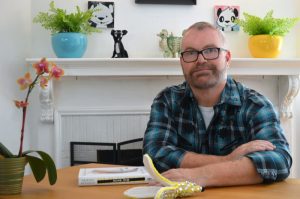
Kevin Dickson
Hello Kevin, thank you for joining me t0day on Novel Kicks. Your novel (which you’ve co-written with Jack Ketsoyan) is called Blind Item. Can you tell me about it?
Sure! The idea for Blind Item came out of conversations that Jack Ketsoyan and I had when I was a tabloid editor and he was a publicist with chaotic clients that I needed to do stories on.
After he came to trust me, we would share the darkest things we’d seen in our jobs, and we swore one day that we’d fold them all into a novel.
With Blind Item, we set out to write a dark romance that was set in the real Hollywood, the city were fame is just another job, and being famous is the worst job of all. We wanted to tell a funny, touching and truthful story that used our experiences as a springboard, and we threw in a generous sprinkling of the scandals that we’d seen over the years.
You’ve been an entertainment journalist for over twenty five years. How did this help with writing the novel? How much in the book is based on true events? (If you’re allowed to say… obviously.)
For a lot of entertainment journalists, their job entails showing up to interviews and spending very formal time around celebrities. I used to do that job. Once I entered the tabloid world, things became lot more informal.
I’ve always believed in journalistic integrity and if someone says something is off record, it’s off record. I think this surprised a lot of celebrities, but as they came to trust me, I began to get invited to private parties at their houses, and I never sold them out.
For many years, I was able to see a side of Hollywood that doesn’t get reported on. It was fun for a while but like anything that you have to do for work, it got old. But the behavior and the ridiculous excess that I saw definitely informed Blind Item.
The book is a fiction, it’s the story of a group of friends who live a life that’s very similar to both Jack’s and my own, when we were starting out in this town. We then saddled our poor characters with a lot of the lurid things that we saw happen, but I’d imagine that this is something that most writers do, go with what you know, write from your experience, but transform it into something more.
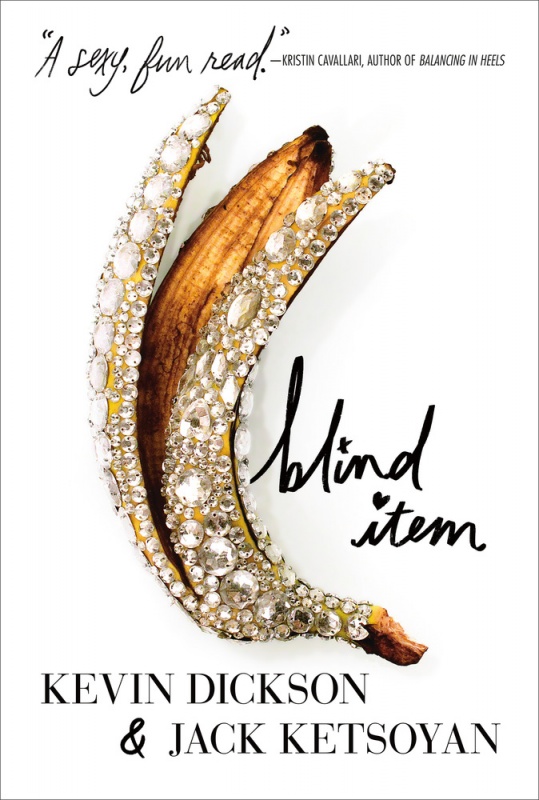
Imprint, July 2017
What was your typical writing day like when writing Blind Item? Do you have any rituals before sitting down to write (needing coffee, music, silence, etc?)
It’s all about ritual for me. On the days that I was writing Blind Item, I would get up and check my phone exhaustively, literally exhaust the news, email, social media and whatnot, so that it would not distract me (and ultimately, as we entered the home stretch, I deactivated Facebook because of its capacity to enable procrastination.)
Then I would pile my two dogs into my car and go get a ridiculously strong coffee at Starbucks.
I would come home and think about the playlist for the day. I can only write to very few albums. I have to know them inside out. But it changes, and I think the material dictates what music I’m able to write to. For most of Blind Item, I only listened to Nocturne by Siouxsie, Last Splash by the Breeders and Golem by Wand. Just three albums on repeat.
I think they soothe my brain. I don’t hear them while I’m writing but they give my subconscious free reign to go live in that made up world. Once I had exhausted myself for the day, I’d go for a hike to clear out and return to myself.
What’s your favourite word and why?
It changes all the time. I like animal words, like panda and pangolin. I like palindromes, like kayak. I like onomatopoeia, and I love invented words. I’ve always loved a word I heard in France, I don’t know how to spell it, but it was something like les roploplos, which an old lady told me was a plural noun for really big boobs.
 I’m saying a big hello today to Audrey Davis. Her debut novel, A Clean Sweep has just recently been released via eBook.
I’m saying a big hello today to Audrey Davis. Her debut novel, A Clean Sweep has just recently been released via eBook.
Love comes around when you least expect it. Fifty-something widow Emily isn’t expecting romance. Nor is she expecting a hunky twenty-something chimney sweep on her doorstep.
Daughter Tabitha knows something isn’t quite right with her relationship, while her boss – Abba-loving Meryl – thinks she’s found the real deal. Are they both right, or pursuing Mr Wrong?
Emily’s sister, Celeste, has the perfect marriage … or does she? Can a fitness tracker lead her down the path to happiness or heartbreak?
Susan is single, overweight and resigned to a life of loneliness. There was the one who got away but you don’t get another try, do you?
Sharing her route to publication, it’s over to you, Audrey.
It’s been five weeks since my first novel – A Clean Sweep – was published on Amazon but I am still giddy with excitement. I am an author! An actual, people-are-buying-my book author (or otter, as my lovely Dutch friend pronounces it). OK, I’m a very long way from topping the best seller list but that’s probably because I’m clueless about the marketing side. More of that in a little while …
My writing journey began several decades ago – yes, I am old – when I trained as a journalist and worked for many years in provincial newspapers and various magazines. My relationship with my now-husband Bill took me to Singapore, Australia and the south of England before we moved to Switzerland in 2002. Along the way we raised two boys, now all grown up and living in the UK, but we remained in the land of cheese and chocolate. Any dreams of writing were put aside as I focused on never-ending house renovations which still challenge my French-speaking abilities but at least I provide entertainment for the local workers.
It was in February 2016 that I signed up for a Start Writing Fiction course run by Future Learn, an offshoot of Open University. Within a few weeks I was totally hooked, exchanging ideas and reviews with fellow students from all over the world. It was one short exercise that gave me the idea for a longer story which then grew … and grew. With no firm plot in mind I found characters popping into my head, along with vague notions of what might happen to them. Five thousand words became twenty thousand and on it went. I ran sample chapters by friends who were effusive in their praise (probably because they are very nice and polite people.)
Penny Parkes has joined me today to talk about her new book, Practice Makes Perfect (released by Simon & Schuster on 29th June 2017.) Thank you for joining me today and congratulations for your new book. Can you tell me a little about Practice Makes Perfect?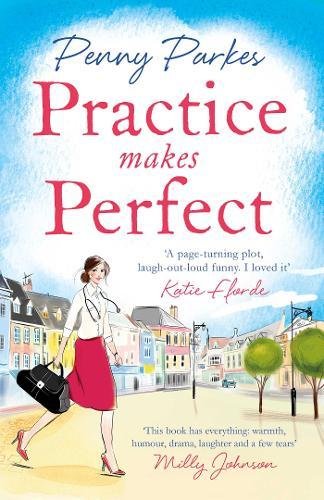
Well, Practice Makes Perfect takes us to the fictional Cotswold market town of Larkford, where we sneak behind the scenes of the medical centre there – The Larkford Practice. There’s a whole new management structure in place. In fact, the four senior doctors are not only entwined professionally, but also personally: 4 partners, 2 couples. So, I’m sure you can imagine how the boundaries between personal and professional become ever more blurry.
On the surface it might seem like the perfect situation and the powers-that-be certainly think so, because they’ve nominated Larkford as a Model Practice. But, as is often the case, if you shine a spotlight on things, it does rather tend to emphasise the flaws…
And, as always in Larkford, we get to see the doctors as a crucial part of their community – in good times and in bad. For Dr Holly Graham, in particular, that relationship works in both directions, as resident celebrity Elsie Townsend makes it her mission to help Holly find balance and fulfilment.
I’m hoping it will be like visiting old friends for those returning to the series after Out Of Practice and also stand alone as a wonderfully rural escapade for those new to the Larkford Valley.
What’s your writing day and routine like? Any rituals?
I have to be fairly flexible, to be honest, to fit around family life, but that doesn’t stop me having an ‘ideal day’ that I try to work towards. I normally see the kids off to school and then have my breakfast – an excellent excuse to muck about on social media while I top up my caffeine levels. Then, The Ginger Ninja and I like to have a little stroll, and this mainly serves not only to wear her out, but also to give me time to think about what I want to write that day. I have found (to my cost) that I am much more efficient if I sit down to type with an idea of where I want the story to go… Even if my characters don’t always behave themselves accordingly once I get started!
What type of writer are you in terms of planning and editing?
I’d have to say that I’m a little of both – I like to sketch out a loose framework and then just let the plotlines develop on their own with a first draft. Only then will I start looking at the balance of points of view and more specific character arcs etc. and of course that’s where my incredibly insightful and lovely Editor, Jo, comes in with some much needed objectivity!
Do you have any advice for anyone experiencing writer’s block?
I think the only thing to be aware of is that, creatively, you can’t drink from an empty cup – if you’re exhausted or ill or hammering out the words simply to up the word count, I think it shows in the quality of those words. Half the time, the days when I’ve pushed through writing with the flu, for example, all those pages have ended up on the cutting room floor anyway! Sometimes better to step away – rest, recover, see a friend – and then suddenly a chance comment in the queue at the supermarket will set my enquiring mind off on a roll… Inspiration is everywhere really, except possibly staring at a blank screen!
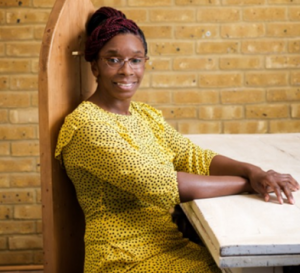 Hello Marilyn. Thank you so much for joining me today. Your book is called Granny with Benefits. What is it about and how did the idea originate?
Hello Marilyn. Thank you so much for joining me today. Your book is called Granny with Benefits. What is it about and how did the idea originate?
Hi Laura, thank you very much for inviting me.
The book is about a 39 year old single woman called Grace. Her grandmother passes away and Grace volunteers to clear out her belongings from the Sheltered Accommodation, but really it’s an opportunity to get her sticky paws on some beautiful coats and jewels that her grandmother owned. Grace is dressed head to toe in her grandmothers clothing when a handsome man, who is looking for accommodation for his father, comes to view the room. They strike up a meaningful conversation about life and love, a discussion Grace believes would not have happened had he not thought she was an old woman. Grace decides that she will use her Granny alto ego to engineer a date for herself with the man, but things do not go according to plan.
The idea originated from two separate conversations that I had with friends of mine. The first conversation was with one of my best friends, who at the time was single and very reluctant to join Match.com. It made her feel exposed and she felt that it was a digital meat market. We had a long conversation about dating. We came to the conclusion that the men we were meeting wanted someone to look after them. They were basically looking for their mothers. This sparked the idea of men looking for their mothers when dating in my head.
The second conversation was with male best friend. I suggested to him that as we both had single friends we should set them up on blind dates. He agreed to speak to his friend and I was horrified when he advised that his friend had given him right of veto to vet my friends via photographs to decide if they were suitable for a blind date. He thought it was a perfectly reasonable suggestion. I thought the pair of them had a bloody cheek!
But it got me thinking. I made me think about the fact that some of us have a checklist that we can’t deviate from when looking for a partner. We aren’t open to surprises. It also made me think about the fact that when you meet someone are you really meeting the real them? Aren’t we all on our best behaviour when first dating?
The two conversations made me want to explore the idea of getting to know someone in a dating scenario without them realising it. What would they reveal about themselves? I also loved the idea of being able to look at the process of dating and aging. Grace gets the opportunity to become her ghost of Christmas Future through her Granny alter ego and it impacts on her present life.
If you were suddenly given the courage to do the one thing you’ve always wanted to do but have not yet done, what would you do?
I would walk a tight rope. I suffer from vertigo and only discovered this in my late twenties. Even the thought of a great height makes me dizzy! I can change a light bulb and put up curtains, basically anything three rungs up a step ladder, but any higher than that and you’re on your own!
What’s your writing process like? When writing this book, did you plan much and did you edit as you wrote or once you’d completed the first draft?
I discovered my writing process and the fact that I could write a novel by accident! I had planned to write a short film and whilst plotting it turned into the novel.
I wrote the entire novel by hand in notebooks, so there was no editing. I have a computer, so I have no idea why I did it this way. I think it was my subconscious not quite convinced that I could write a novel, so didn’t want to commit to it fully. When I typed up the novel that served as my first edit. Then when I read it back, that was the second edit.
I then came across an organisation called Spread the Word and they offered one to one Fiction Surgeries, so I booked one. It was invaluable. Based on the Writer Development Manager reading a 3000 word extract from the novel, I was given some top tips on where it wasn’t quite working. One of the books recommended at the session was Stephen King’s On Writing. It is an absolutely fantastic book for any writer, but particularly a new one like me. Once I read that I knew what I needed to do with the novel. I didn’t touch it for four months then I gave it a complete restructure and further edit.
At this point I knew I had got it in the best possible shape I could on my own, so I then found an Editor. We did one edit and a final read through and the book was done!
I was quite a long journey, but I now have it down pat, which made writing my second book a much more refined process. Plotting is the key for me. I plot from beginning to end before I write a single word on the manuscript.
Which authors do you admire and why?
I was a prolific reader as a child, but then I discovered film and so most of the authors I admire are from my childhood.
I loved Roald Dahl books. His imagination seemed boundless. He seemed to have a knack/genius for creating fantasy worlds that were comfortably inhabited by real children. Nothing seemed impossible, but simply magical.
 I’m pleased to be welcoming author, Kate Hughes to the blog today.
I’m pleased to be welcoming author, Kate Hughes to the blog today.
She chats to us about her self-publishing journey and what it was like for her. Over to you, Kate.
So I’d written a book. Now what?
All the advice I read said ‘Get an agent’. It all sounded so straightforward. So I diligently ordered the Writer’s Handbook and began to contact the relevant agents listed within its many pages. Email after email was sent but gradually after reading what felt like the millionth rejection message, it finally dawned on me that it was pretty unlikely that I was going to get any interest. I was unpublished, unknown and unimportant.
What to do? I’d invested so many hours in writing my precious book that I wanted at least a few people to read it. A friend of mine had just self-published his first novel and was having a lot of success, so he convinced me to give it a go. After sorting out all the formatting issues, which for a technophobe like me was extremely demanding, Amazon were pretty good at taking me through the self-publishing process. I had to upload the correct format of my book (finally it looked like a proper book with chapters and everything) then I had to design the cover. Again, Amazon have a handy cover creator which allows you to use pictures and text on their program. I know many authors pay to have their own covers designed and they look amazing, however as I had no idea whether I was actually going to sell any copies yet I was loathe to spend money I didn’t have! I have to say I was pretty pleased with the finished cover anyway. Just a few more boxes to fill in then…
I self-published my debut novel Mr Brown’s Suitcase in 2014. BUT and this is a big ‘but’ (hence the capitals) now the real work began.
The book is out there but, in order to sell any copies, people have to know. If you go through a traditional publisher they’ll sort all that out for you, but down the self-publishing route it’s all your responsibility. That for me has been the hardest part. The huge problem is that there are so many self-published authors out there. The competition to get your book noticed in a crowded marketplace is a challenge. I also work in a profession (teaching) which isn’t known for its expertise in self-promotion so it didn’t come easily! I had to advertise on all my social media accounts and encourage friends and family to share the news and a link to my book, use word of mouth (i.e. drop into the conversation at an appropriate time, “Did you know I’ve written a book?”), ask book bloggers to review my book (and hope it’s positive!) and contact relevant websites who I thought might be interested. Phew!
 Hello Emma, thank you for joining me today. Firstly, What’s your writing day like?
Hello Emma, thank you for joining me today. Firstly, What’s your writing day like?
It varies, depending on a lot of things – other commitments, my mood, the weather (yes, really). However, if possible, I do the bulk of my actual writing first thing in the morning. I’m an early riser, so this means no later than 6am in the winter and, often, as early as 4am in the summer. I love that time of day for its peace and quiet. No interruptions. And my brain seems to function best then. Later, if I can, I will go back to my writing and redraft or I’ll research things. There’s usually an energy dip in the afternoon, so that’s when I try to make myself do mundane but important tasks like tidying my desk (I’m a very messy writer), sorting, labelling.
Your new book is called The Valentine House. Can you tell me a bit about it?
The Valentine House is about an English family who go, every year, to their summer home, high up in the French alps and about someone from the village nearby called Mathilde. At the start of the story, Mathilde is employed to work as a servant for the family. She becomes involved with them in all sorts of ways, discovering a secret that affects them all. The novel explores the relationship between the two cultures and also the relationship between identity and place.
If you could have a chalet anywhere in the world, where would you have it and why?
I would have it in the French Alps. I can’t say where, precisely – there are so many beautiful spots to choose from. But somewhere that is accessible, yet feels remote, and, above all, somewhere with a view – of the mountains, a valley, a village, a river, a blue, blue sky. Why? Because I’ve seen chalets in places like that. They exist. It’s not a fantasy. People live in them. I’d like to be one of those people.
What’s your writing process like – edit as you go? Much planning?
My writing process is a mixture of editing as I go and planning. I’m not very good at planning in advance. I try to do it. I make myself do it. But I tend to write first and just see what happens. Usually, this results in a mess of words, which I then have to sort and turn into a novel. So the planning happens during and after, not before the writing, usually.
Do you have any writing rituals? Coffee, silence, tea?
No rituals, although I like silence and solitude. The only quirky thing is my use of 2B pencils. I have a big stock of them. I like to have them within arms’ reach wherever I am in the house. When things are going well, that means 2B pencils all over the place – on the floor, in my bed, next to the bath. They are used mostly for jotting, but sometimes for longer bits of writing, but my handwriting is terrible and, when I write quickly, even I find it difficult to read later. I have to type up my 2B jottings quickly, therefore.
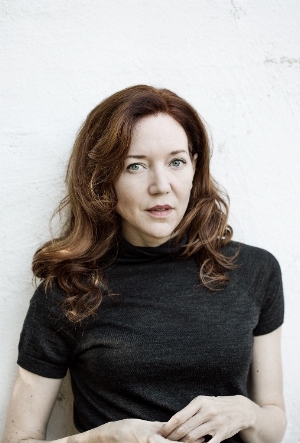
Meg Howrey (photo credit: Mark Hanauer.)
Hello Meg, it’s so lovely to welcome you to Novel Kicks today. Your book is called The Wanderers (released yesterday and has, in my opinion one of the prettiest book covers.) Can you tell me about the novel and how the idea originated?
Thank you! (And I love that cover too.)
“The Wanderers” imagines that a private space company is four years away from sending the first crew of humans to Mars. Three astronauts have been selected, and as part of their training they are asked to undergo a seventeen-month simulation of the mission. The story is told from the point of view of the crewmembers, and also from some of the people they’ll be leaving behind: a wife, a daughter, and a son. We also hear from of one of the people tasked with observing and evaluating the astronauts. It’s a story about ambition, isolation, inner space, the problem of knowing what is “real” or even what “real” means, and the different kinds of personal simulations human beings find themselves in. (I hope it’s also a little bit funnier than my description!)
The idea for the book was inspired by a newspaper article I read concerning a simulated Mars mission: six volunteers spent 520 days in a module, being tested for the kind of psychological and physiological stresses a crew might experience in a long-duration space expedition. I thought it sounded like an incredibly cool setting for a novel.
What was your approach to the writing process with this novel – did you plan a lot, wait until you had a whole draft before editing?
I spent over a year researching before I wrote anything at all. The research continued for the length of writing: about four years. I don’t outline, but I spent months writing the first chapter and thinking through the general shape of the book. I revise CONSTANTLY.
Once you’d written your first novel, could you tell me a bit about the route you had to publication and how the process was different with this novel?
The first novel I wrote didn’t sell—just got very lovely rejection letters. So I put it away and tried again. The second book sold, and the editor who acquired it was interested in that first book, and told me to take it out and work on it a bit. I did, and it became my second published novel. (Lesson: you never know.) I don’t usually show anyone what I’m working on until it’s finished, so with “The Wanderers” my literary agent only knew that I was working on “something with astronauts in it.” It’s my first book to be published in the U.K, which is tremendously exciting for me.
Do you have any writing rituals – coffee before you start? No noise etc.
I avoid all rituals or rules involving writing other than Work Hard and Care About Everything.
Do you have any advice for anyone who might be suffering from writers block?
Well, I’m reluctant to give advice but I can say what I think it true. It’s this: writing isn’t about word count or how many hours a day you spend typing. (It’s also not about publishing.) Writing is a way of confronting the world. When I’m stuck, it’s because I’m not confronting the world, I’m confronting the “idea of being a writer.” That’s a closed-loop system. So, I go to museums, art galleries, concerts, plays, and read poetry and non-fiction. I stop being “person who is trying to write” and let myself be a reader, an audience member, a student. At a certain point, it becomes clear that being a writer MEANS being a reader, an audience member, a student. I get excited about what I’m observing, learning, confronting, and I want to talk about it, figure it out, and make something of my own.

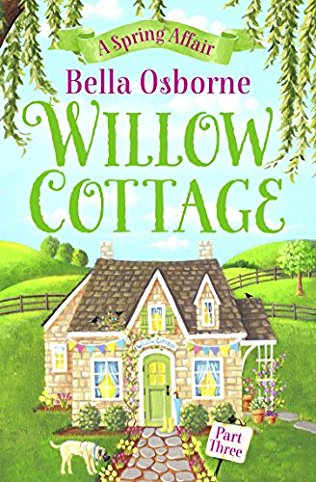 Big lovely hellos to Bella Osborne who is back on Novel Kicks with her blog tour for the third instalment of her Willow Cottage series. It’s called A Spring Affair and was released by Avon on 23rd March 2017.
Big lovely hellos to Bella Osborne who is back on Novel Kicks with her blog tour for the third instalment of her Willow Cottage series. It’s called A Spring Affair and was released by Avon on 23rd March 2017.
Beth is running away. With her young son Leo to protect, Willow Cottage is the lifeline she so desperately needs. Overlooking the village green in a beautiful Cotswolds idyll, Beth sees a warm, caring and safe place for little Leo.
When she finally uncovers the cottage from underneath the boughs of a weeping willow tree, Beth realises this is far more of a project than she bargained for and the locals are more than a little eccentric! A chance encounter with gruff Jack, who appears to be the only male in the village under thirty, leaves the two of them at odds but it’s not long before Beth realises that Jack has hidden talents that could help her repair more than just Willow Cottage
Over the course of four seasons, Beth realises that broken hearts can be mended, and sometimes love can be right under your nose…
Willow Cottage is part of a serialized novel told in four parts, following the journey of Beth and her new life in the Cotswolds. The full book will be out next this August, but for now, enjoy Willow Cottage seasonally.
With her top five spring inspired movies, it’s over to you Bella.

Paramount Pictures
Hi Novel Kicks, Thank you for having me on your blog today.
Part 3 of Willow Cottage is set in springtime so that got me thinking about films that are set in the spring and there really aren’t many that spring to mind (apologies – no pun intended).
When it comes to seasonally focused films winter and Christmas seem to have the monopoly. However, after dusting off my DVDs I came up with a list of five films I love that even if they aren’t specifically set in spring they certainly make me think of that time of year.
Ferris Buellers Day Off (1986)
This is of course a modern classic – charming and hilarious. It’s what we all hoped we would do with an unplanned day off school. Ferris has some good advice for us all – ‘Life moves pretty fast. If you don’t stop and look around once in a while, you could miss it.’ Ferris Bueller

Portman Entertainment, Sky Pictures, WAVE Pictures

Touchstone Pictures, Mad Chance and Jeret Entertainment
Saving Grace (2000)
I love this film. It stars Brenda Blethyn as recently widowed Grace who suddenly discovers that her husband was on the brink of financial ruin and she is about to lose her home. Fear not, this is most definitely a comedy and a very sweet one at that as Grace puts her green fingered skills to great use with some interesting plants!
10 Things I hate About You (1999)
Heath Ledger at his most gorgeous but watching him always leaves a tinge of sadness. A modern day version of Taming of the Shrew based in an American High School – what’s not to love?
You’ve Got Mail (1998)
My favourite Nora Ephron film staring Tom Hanks and Meg Ryan and based around the cutest bookshop in New York. Romantic comedies don’t get much better than this!
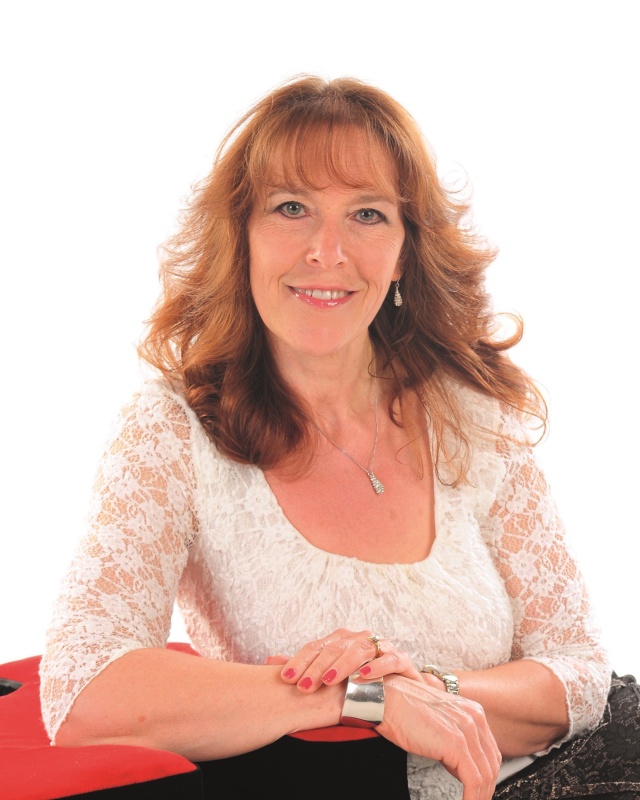 Hi Dani, thank you for joining me today. Congratulations on the release of This Love. To begin, could you describe what was your route to publication like?
Hi Dani, thank you for joining me today. Congratulations on the release of This Love. To begin, could you describe what was your route to publication like?
If it was a journey, I would have to say it was one that took a scenic route, rather than the fast track. Like many unpublished authors, I was largely fumbling around in the dark, trying to get my first book noticed. I did send it out to literary agents, but sadly without success. Eventually I had to accept that, for whatever reason, this was not the right time for me or my book, and sadly relegated it to a memory stick in my desk drawer. Then four years later in 2013 my daughter offered to help me self-publish. Very soon, after a lifetime of thinking it was never going to happen, I was lucky enough to have both an agent and a publishing deal. But best of all, I finally had the opportunity to share a story that very nearly never got to be told at all.
Your new book is called This Love. What’s it about?
THIS LOVE is an emotional drama, but – as its title would suggest – at its core it’s very much a love story. It’s a book about falling in love with possibly the one person you should never become involved with, for a great many reasons. But it’s also a story about the heart ruling the head.
The main character is Sophie who, because of a past tragedy, has chosen to live a very contained and limited life, until a dramatic event occurs, and she meets Ben. After that the prison walls she had built around her come crashing down and the path to her future is rewritten. Although it’s about being rescued, THIS LOVE is also about finding the courage to rescue yourself. And, of course, it wouldn’t be one of my books if there weren’t some fairly major obstacles standing in the way as well.
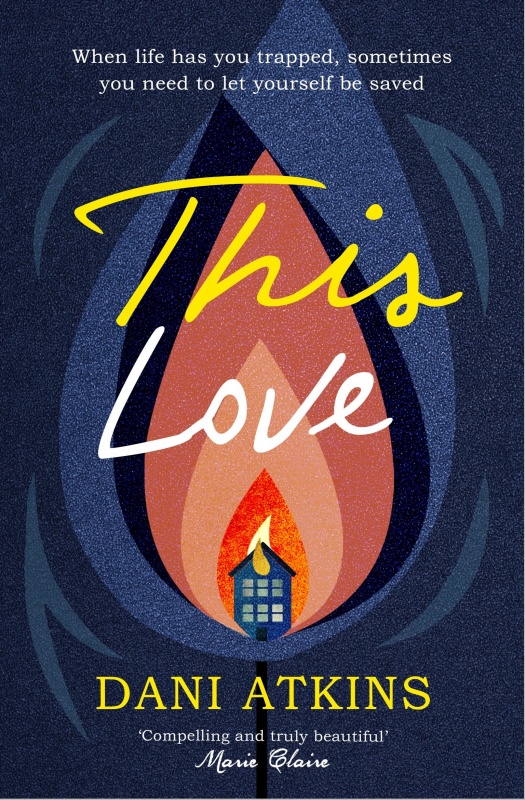 What’s the best and hardest part of being a writer?
What’s the best and hardest part of being a writer?
The best part of this job is doing something for a living that you would choose to do as a hobby anyway. I don’t think you can – or should – ever consider writing a book to earn a great deal of money, because that literary jackpot only happens to a very small select group of authors – which is probably why those jaw-dropping six figure deals make the headlines. Most of us are just happy to earn enough to cover the mortgage. I believe the only reason to do this job is because you have a passion for storytelling. And if you’re fortunate enough to find someone who wants to pay you for the privilege of doing something you love, then that is the most incredible bonus.
The hardest part of being a writer is probably the isolation and the potential loneliness. There’s no one around for the famous ‘water cooler chats’ anymore. Also there is a very slippery slope you could easily slither down: unwashed; not even brushed your hair; working all day in your pyjamas; not wearing a scrap of makeup. Funnily enough, however scruffy you look, the people in your book don’t seem to care a bit!
When writing This Love, what was your writing process like? Did you plan much? Do you tend to complete a first draft before editing?
 Award winning author Liz Fenwick’s latest novel, The Returning Tide is released today by Orion.
Award winning author Liz Fenwick’s latest novel, The Returning Tide is released today by Orion.
Two sisters and one betrayal that will carry across generations . . .
In wartime Cornwall, 1943, a story between two sisters begins – the story of Adele and Amelia, and the heart-breaking betrayal that will divide them forever. Decades later, the effects of one reckless act still echo – but how long will it be until their past returns?
A big, lovely welcome to Liz who joins me today with her advice on staying motivated when writing. Over to you, Liz…
The beginning of writing a novel is a wonderful thing. I am in love. The book in my head is perfect in every way from flawless sentences, twists galore and characters to die for…it’s all there unsullied by actually putting a single word on the page.
This love affair normally lasts for about 20,000 or maybe to 40,000 words if I’m lucky…then the doubts creep in. What was I thinking? It’s awful. These thoughts I refer to as the crows of doubt and they really begin to circle. This is when I turn to research and writing craft books. I’m always scared that I won’t find the inspiration to complete the story but digging into research fills my head with more ideas. Writing craft books make me look at things from a different angle.
Both of these exercises are essential to finding the will and the inspiration to keep going until I type the end.
I also remind myself that the first draft of the book is for me…for me alone. It’s fine that it is so far from perfect, from the book in my head. I tell myself that once the first draft is done I can fix it but I can’t fix an empty page.
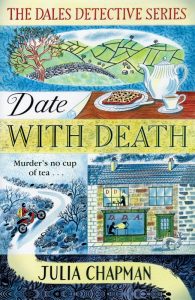 Huge hellos today to Julia Chapman and the blog tour for her new novel, Date with Death which is part of the Dales Detective Series, released by Pan on 9th March. Here’s a bit about it….
Huge hellos today to Julia Chapman and the blog tour for her new novel, Date with Death which is part of the Dales Detective Series, released by Pan on 9th March. Here’s a bit about it….
Murder’s no cup of tea.
Samson O’Brien has been dismissed from the police force, and returns to his hometown of Bruncliffe in the Yorkshire Dales to set up the Dales Detective Agency while he fights to clear his name. However, the people of Bruncliffe aren’t that welcoming to a man they see as trouble.
Delilah Metcalfe, meanwhile, is struggling to keep her business, the Dales Dating Agency, afloat – as well as trying to control her wayward Weimaraner dog, Tolpuddle. Then when Samson gets his first case, investigating the supposed suicide of a local man, things take an unexpected turn, and soon he discovers a trail of deaths that lead back to the door of Delilah’s agency.
With suspicion hanging over someone they both care for, the two feuding neighbours soon realize that they need to work together to solve the mystery of the dating deaths. But working together is easier said than done . . .
To celebrate the release of her new novel, Julia asks, what’s in a name.

My novels are full of characters. But when you are creating a brand new person, where do you start? Usually, the physical characteristics come first for me. On the odd occasion, a character has emerged on the page complete with name from the very beginning. But that’s unusual.
On the whole, I create the people who populate my books from scratch. But sometimes the traits I give them come from real life. For example, I have a gorgeous Weimaraner called Tolpuddle in my new Dales Detective Series, a large grey dog who has a habit of leaning against people. I took that detail from a New Zealand Huntaway I once knew who was just like that. He would come up and lean into you, his weight heavy on your leg. But it wasn’t threatening. It was reassuring. As though he was letting you know he was there – in case you were in trouble.
I stole that characteristic and gave it to Tolpuddle. The rest of him is pure fiction. Especially his penchant for beer!
But perhaps the most essential part of any character, for me, is the name. It can tell you as much as any detailed physical description. More sometimes! We all know a Susie is different to a Susan. A Bill is going to be possibly less formal than a William. We can even deduce a person’s age simply from what they are called. Edith and Lucy – both live in Bruncliffe, the setting for the Dales Detective Series. Want to take a bet which one lives in Fellside Court retirement complex and which one runs the local cafe?
(Having said that, I do have a character called Titch who is massive. But then, if a bit of name inversion was good enough for Little John in Robin Hood then I’m happy to follow suit!)
How to choose this fundamental aspect of the people who will populate my books, then? By the time I reach the stage of assigning a label, the personality is usually fully formed. So I need the name to be right – it has to fit the person emerging from under my words like a glove. Consequently, it can take me a lot longer to christen my characters than to create them.
Take the landlord of the Fleece in Bruncliffe, the setting for the Dales Detective Series. He’s morose. A misanthropist.
He’s a reluctant host and suffers his customers only because they make him money.

Caroline Lea
Massive happy hellos to Caroline Lea and her stunning debut novel, When The Sky Fell Apart which has just been released by Text Publishing.
Jersey, June 1940: it starts with the burning man on the beach just after the bombs land, obliterating the last shred of hope that Hitler will avert his attention from the Channel Islands. Within weeks, 12,000 German troops land on the Jersey beaches, heralding a new era of occupation.
For 10-year-old Claudine, it means a re-education under German rule, and as she befriends one of the soldiers, she inadvertently opens the gateway to a more sinister influence in her home with devastating consequences.
For Maurice, a local fisherman, it means protecting his wife at all costs. He has heard the whispers from France of what the occupiers do to invalids like Marthe and he is determined to keep them away from her – even if it means endangering his own life.
Edith, the island’s unofficial homeopath, is a Jerriais through to her bones. She sees her duty as caring for those who need her in their darkest time, but even she can’t save everyone, no matter how hard she tries.
And as for English doctor Tim Carter – on the arrival of the brutal Commandant, he becomes the subject of a terrifying regime that causes the Jersey locals to brand him a traitor, unaware of the torment he suffers in an effort to save them.

It’s over to Caroline where she is chatting about her writing process and the magic of editing. I’ve also reviewed the book too.
I’ve always written, but it took having children to compel me to finish my first novel. Perhaps it was the escapism writing offered, or the fact that motherhood has shown me both that I am a huge control freak, and that parenting is hard (why didn’t someone warn me that my kids would have opinions, or that they might prefer fistfuls of sugar to steamed broccoli?). The result was WHEN THE SKY FELL APART, which was written in six months during my children’s nap-times. Children provided me with a useful time constraint—I always respond well to a deadline—and writing provided me with characters I could control, so that it mattered less when my children drew on their faces with sharpie marker pens.
There were many surprises along the road to publication, not least of which was the amount of criticism writers must be willing to accept. The key is to acknowledge it, struggle back up, dust yourself off and continue to write, ignoring the monkey on your shoulder, babbling that you’re a failure. Writers are masters of self-sabotage. It’s easy to sit in front of a blank screen, paralysed by the idea that, whatever you write, it won’t be good enough. At the other end of the spectrum is the eviscerating experience of writing something ‘good’, only to feel utterly shattered by critical feedback from an agent or editor. All this emotional battery can leave hopeful writers feeling like the end product might not justify the years of tears and crushed egos, but I think that the problem is often that we expect to be ‘good’ too soon: we don’t allow ourselves to write badly.
Bear with me. I’m not suggesting that you send out your first draft of poorly shaped plot, with under-developed characters (I tried this with the first draft of my second novel: the response from my wonderful and longsuffering agent was polite but brutal). But I am saying that good work often starts with ‘bad’ writing, and with forgiving yourself for writing badly, and then being ready to endlessly reshape, rework, edit and redraft. This is where the magic happens. Imagine that you’re a sculptor. The first, roughly hewn block of wood will look be underwhelming. You’ll spend hundreds of hours sawing, chiseling, sanding and varnishing it before you have anything worthy of display. On the other hand, there may be things that remain in your novel through all twenty redrafts: WHEN THE SKY FELL APART starts with a burning man on a beach, and the first sentence, which was the impetus for the whole novel, has never changed: When he was on fire, the man smelt bitter.
 Who’s That Girl is the brilliant novel from Mhairi Mcfarlane. I’m so incredibly excited and honoured to be welcoming her to Novel Kicks today. I’ve reviewed Who’s That Girl below but first, I have a chat with Mhairi about her book, her writing process, who from the fictional world she’d like to hang out with and writing advice I am going to print out and pin to my desk.
Who’s That Girl is the brilliant novel from Mhairi Mcfarlane. I’m so incredibly excited and honoured to be welcoming her to Novel Kicks today. I’ve reviewed Who’s That Girl below but first, I have a chat with Mhairi about her book, her writing process, who from the fictional world she’d like to hang out with and writing advice I am going to print out and pin to my desk.
Hi Mhairi, it’s lovely to welcome you to Novel Kicks today. Could you tell me a little about your novel, Who’s That Girl?
Lovely to be here! Who’s That Girl? is about Edie Thompson, 36, who is caught kissing the groom on his wedding day. She has her reasons, but no one wants to hear them, and it causes a scandal that sees her carefully managed life in advertising in London fall apart. She she has to go home to Nottingham and face her demons, and her grumpy younger hippy sister, Meg. She gets a temporary assignment ghost writing a celebrity biography and meets a hot new actor, Elliot Owen. Together they help each other tackle fame and infamy.
 What’s your writing process like? Are you much of a planner or edit as you go?
What’s your writing process like? Are you much of a planner or edit as you go?
I am such an ex journalist in this respect: I edit like fury as I go along, I don’t know how else to be: it has to feel more or less right or I can’t move forward. It’s a good thing in it that I tend to be quite clear in my tone and intent from the start, and I don’t have – my editor gives side eye here – HUGE rewrites later, but it doesn’t make me all that speedy, either. I have to bully myself to move on and not torture myself over it being exactly where I want it and polished to a high shine. Which no first draft ever is, really.
If you mean plot planning, I work to a rough A to Z outline but there’s a fair amount of free styling along the way.
Do you have any writing rituals for example writing in silence, chain drinking coffee?
Oh I hammer through great pails of black coffee definitely. No rituals, I’m not one of those ordered Kon Mari-ish writers with five fresh pens and a 9am on the dot start at a sun lit desk and all that. I can’t cope with music when I write, way too distracting, but oddly I can cope with the bang and clatter of a coffee shop, so if I get cabin fever, I take my laptop to Caffe Nero. Then of course I sit down next to five shrieking students and I start scowling as if they’ve brought their lattes into my library.
 Starting a new novel is always so exciting. Everything feels shiny and fresh, and you just know it will be the best book you’ve ever written.
Starting a new novel is always so exciting. Everything feels shiny and fresh, and you just know it will be the best book you’ve ever written.
I love that moment, before the inevitable self-doubt sets in. I don’t have any particular rituals when I sit down to write a new book, but I always sketch out the obstacles my characters will face and how I want them to change and grow by the end of the book.
I also think about their backgrounds and their internal conflicts, either as a result of their history or character traits. I often don’t have a picture of my protagonist in my mind, but I do need to ‘know’ them: their fears, their likes and dislikes, and what they want out of life.
I’ve tried both exhaustive planning and ‘pantsing’, and I usually fall somewhere in the middle.
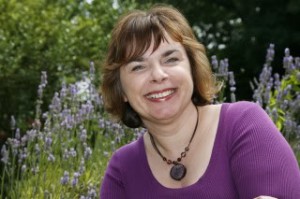 I am delighted to be welcoming Phillipa Ashley back to Novel Kicks today. Phillipa’s latest book is very much festive themed and is called Christmas at The Cornish Café. It’s the second novel in the Cornish Café series and was released by Maze.
I am delighted to be welcoming Phillipa Ashley back to Novel Kicks today. Phillipa’s latest book is very much festive themed and is called Christmas at The Cornish Café. It’s the second novel in the Cornish Café series and was released by Maze.
Christmas will be slightly less turbulent than summer, won’t it? Demi certainly hopes so.
She and Cal are keeping their fledgling relationship under wraps for now. But then Kit Bannen, a hunky, blond – and somewhat mysterious – writer arrives at Kilhallon Resort, and not everyone is charmed. Cal is sure that Kit is hiding something. But is he the only one guarding a secret?
Demi is busy baking festive treats for the newly opened Demelza’s cafe, but when Cal’s ex Isla arrives to shoot scenes 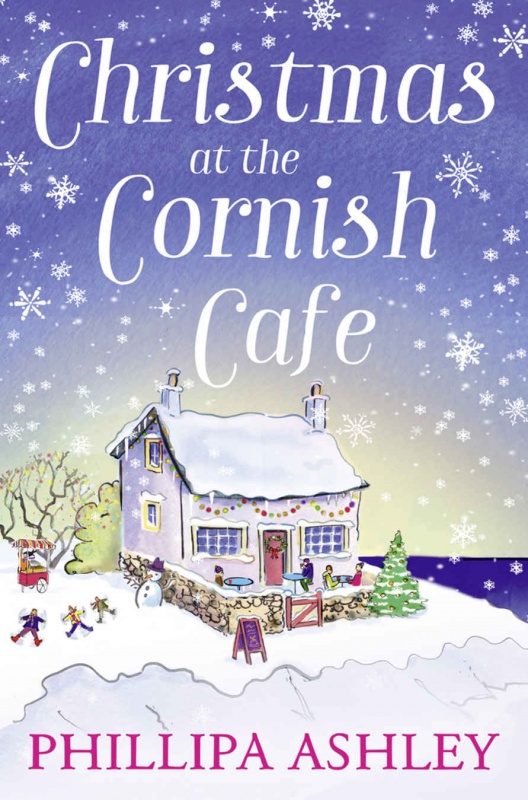 for her new drama, Demi can’t help but worry that things aren’t quite over between them. Kit flirts with both women, fuelling Cal’s suspicions that Kit has hidden motives for staying on at Kilhallon. Then Cal has to go to London, leaving Demi and Kit to decorate the cafe for Christmas . . . all by themselves.
for her new drama, Demi can’t help but worry that things aren’t quite over between them. Kit flirts with both women, fuelling Cal’s suspicions that Kit has hidden motives for staying on at Kilhallon. Then Cal has to go to London, leaving Demi and Kit to decorate the cafe for Christmas . . . all by themselves.
A storm is brewing in more ways than one. As surprises unfold and truths are uncovered, can Demi and Cal finally open up to each other about their feelings?
As it is nearly Christmas, Phillipa has shared some of her favourite Christmas scenes. Over to you, Phillipa…
Believe it or not, after 16 books and over a decade of writing, Christmas at the Cornish Café is my first ‘Christmas’ novel. Even though my debut novel, Decent Exposure, was made into the Lifetime movie, 12 Men of Christmas, it was never written as a Christmas book.
It was important to me that Christmas at the Cornish Café truly reflected the challenges my characters and the community might face in a small Cornish fishing village – and how people might pull together to help each other against all the odds. I hope you enjoy reading it. Now, here are some of my favourite scenes from seasonal books, films and TV.
The Carrs’ Christmas Box – What Katy Did at School
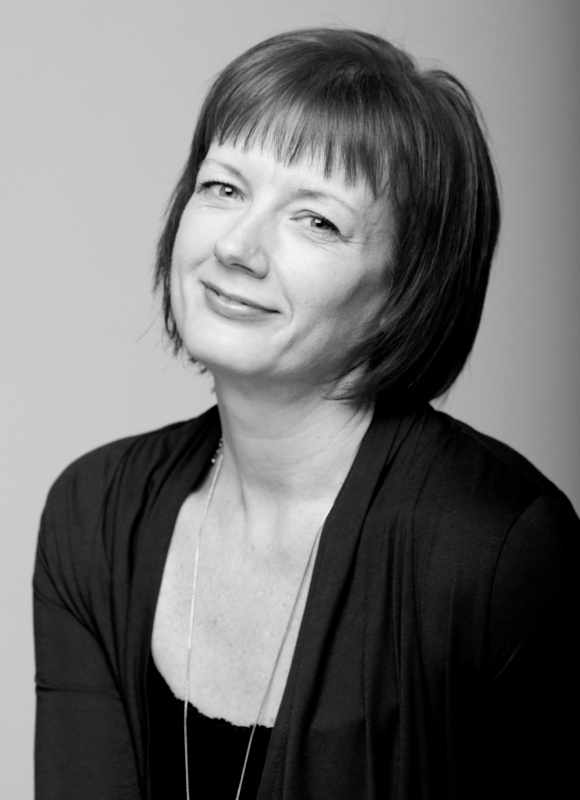 Today, I am welcoming Amanda Brooke and the blog tour for her latest novel, The Affair which was released by Harper on 10th November in electronic form with the paperback release due for 12th January.
Today, I am welcoming Amanda Brooke and the blog tour for her latest novel, The Affair which was released by Harper on 10th November in electronic form with the paperback release due for 12th January.
A shocking story about a fifteen-year-old girl and the man who took advantage of her
“You might as well know from the start, I’m not going to tell on him and I don’t care how much trouble I get in. It’s not like it could get any worse than it already is.
I can’t. Don’t ask me why, I just can’t.”
When Nina finds out that her fifteen-year-old daughter, Scarlett, is pregnant, her world falls apart. Because Scarlet won’t tell anyone who the father is. And Nina is scared that the answer will destroy everything.
As the suspects mount – from Scarlett’s teacher to Nina’s new husband of less than a year – Nina searches for the truth: no matter what the cost.
Hello Amanda. Thank you so much for joining me on Novel Kicks today. Your new book is called The Affair. Can you tell me a little about it and how the idea originated?
Thank you for inviting me on to Novel Kicks, it’s lovely to be here again! The Affair begins with the news that fifteen year old Scarlett is pregnant to a married man. She won’t say who it is, but the two likely candidates are her stepfather and her teacher. The story is told from the point of view of the men’s wives; Scarlett’s mum, Nina and teacher’s wife, Vikki. I also introduce Scarlett’s voice as a narrator, and she describes the early days of her relationship and how she feels when the accusations start to fly. I’m not sure how much I can say about how the idea originated without giving too much away. I had a scene in my head of a schoolgirl watching from the periphery while other people’s lives fell apart. She wasn’t meant to be the focal point of the book, other than perhaps a final reveal, but after long chats with my editor, the premise of the story morphed into something quite different, and it was both a pleasure and a challenge to write.
Can you describe what your typical writing day is like? Any rituals like needing tea or writing in silence?
You’ve asked that question at a very exciting time, because I gave up work this month to write full-time. I’ve spent thirty-one years in local government and for the last five I’ve been juggling two careers, fitting in my writing around the day job. I can tell you what I plan to do, which is to concentrate on my writing in the morning, which allows me to spend the rest of the day thinking about what I’ve written and where I need to take the story next. I’m conscious that working from home will be quite sedentary, so I’ve had my treadmill adapted, with a small desk that fits on top of the handlebars. My first hour of writing will be spent walking and typing so I can wake up my body and brain at the same time. As I’ve said, that’s only the plan so you might need to ask me again in a year’s time to see if I’ve kept to it.
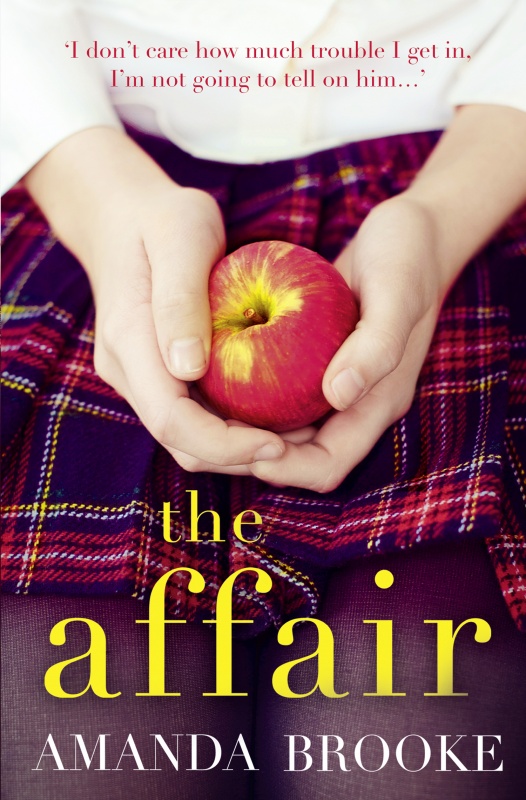 How do you approach writing your novels? Are you much of a planner and need to know your characters well and plot inside out? Do you edit as you go?
How do you approach writing your novels? Are you much of a planner and need to know your characters well and plot inside out? Do you edit as you go?
When I have an idea for a story, I like to mull it over in my head for a while before I commit to paper. The starting point is a two page synopsis, which doesn’t necessarily cover sub-plots or minor characters but should be enough to capture the essence of the story. My next task is to cut up the synopsis into about twelve sections, which in theory will be the chapters and, if nothing else, it gives me some reassurance that I have enough of a story for a full length manuscript. When I’m ready to start writing, I tend to have a very clear idea of the opening and final scenes, but the rest of the book remains relatively fluid. I enjoy getting to know my characters and they’re the ones who fuel my imagination as I go along, creating situations and conflict I never could have imagined from the start. In terms of editing, I see that first draft almost as a test run, it’s only during the subsequent rewrites that I really get to know the story.
 Playing FTSE by Penelope Jacobs was released by Ipso Books in digital format yesterday (24th November)
Playing FTSE by Penelope Jacobs was released by Ipso Books in digital format yesterday (24th November)
When Melanie Collins joins an investment bank as a young graduate, she quickly discovers that femininity is an invaluable asset. But it must not be abused.
She witnesses other women falling victim to office affairs and is determined to be taken seriously. In an industry where abilities are rewarded handsomely, she rises rapidly through the ranks. But her increased profile attracts the attention of a senior colleague and she is ill-equipped to handle his advances.
Balancing a demanding job with a confusing personal life proves difficult and soon their relationship threatens to jeopardise her career. As events move beyond control, her glamorous world becomes tainted by betrayal and bitterness.
One of the themes in the book explores the issues the main character Melanie has with balancing her personal life with her professional one.
The author of Playing FTSE, Penelope Jacobs is joining me today to talk about her thoughts on balancing work and family and why we can’t have it all. Over to you, Penelope.
Achieving a work-life balance is not always possible and certainly requires sacrifices.
Marriage and, more specifically, babies seem to be the tipping point, when life can sometimes spiral out of control. As noted by the National Health Interview Survey, 30-44 year olds report the largest “work-lifestyle imbalance”. During this period, many high-powered career women have simply piled far too much onto their plates. On top of a highly pressurised job, they suddenly have to cope with the demands of small children, a husband and running a household. Not to mention find a little time for themselves.
The Mental Health Foundation states that “the pressure of an increasingly demanding work culture in the UK is perhaps the biggest and most pressing challenge to the mental health of the general population.” In addition, “many more women report unhappiness than men (42% of women compared with 29% of men), which is probably a consequence of competing life roles and more pressure to ‘juggle’.”
Why are we accepting this burden from society? In my opinion, it is not possible to “have it all” and at the same time seamlessly achieve a wonderful work-life balance.
Every woman I know has made some type of sacrifice which, by definition, means they do not have it all. At one extreme, some high-powered women consciously choose not to have children and, at the other, an enormous number leave their brilliant careers permanently to raise a family. In both cases, the costs are high.

Me in Japan with a maiko (trainee geisha)
A big welcome today to Lesley Downer and the blog tour for her latest novel, The Shogun’s Queen which was released by Bantam Press on 3rd November.
Japan, and the year is 1853. Growing up among the samurai of the Satsuma Clan, in Japan’s deep south, the fiery, beautiful and headstrong Okatsu has – like all the clan’s women – been encouraged to be bold, taught to wield the halberd, and to ride a horse.
But when she is just seventeen, four black ships appear. Bristling with cannon and manned by strangers who to the Japanese eyes are barbarians, their appearance threatens Japan’s very existence. And turns Okatsu’s world upside down.
Today, on the last day of the tour, Lesley has joined me to talk about writing The Shogun’s Queen. Over to you, Lesley…
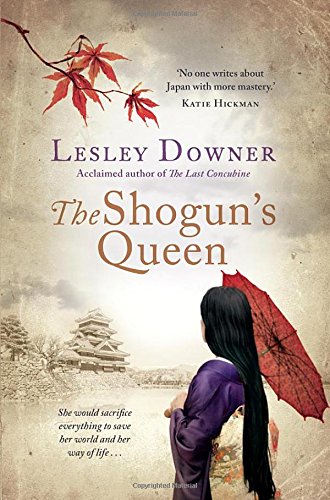 Hello, Laura. Thank you for allowing me to post on your blog today! I greatly appreciate it.
Hello, Laura. Thank you for allowing me to post on your blog today! I greatly appreciate it.
I’ve had a love affair with Japan all my life, and when I decided to move from non-fiction to fiction ten years ago, it was obvious that was where my stories would be set. I’m also mad about research. I love any excuse to go to Japan and I also love scouring old books written by Victorian travellers who were there in the nineteenth century. If I could live my life again it would be in old Japan, the Japan of the great woodblock print artists Hokusai and Hiroshige – and a reasonable second best is reading about it and being there in my mind and taking my readers there as I write about it.
Somehow – I forget how – I came across the Women’s Palace, a sort of harem where three thousand women lived and only one man, the shogun (the military ruler of Japan), could enter. To me the most surprising thing was that I’d spent so long in Japan and read so much about it yet in all those years hadn’t come across the Women’s Palace before. I decided to set my first novel there and so The Last Concubine was born. There was literally nothing in English about the palace. I had to struggle through a book written in Victorian-era Japanese with the help of a Japanese friend. My story took place at the very end of the era of the shoguns and my heroine fled the palace early on in the book.
I went on to write two more novels following on in time after the events of The Last Concubine.
Somewhere along the way I heard of Atsu’s heart-rending story and couldn’t get it out of my mind. It haunted me. Telling her story would mean going back to the Women’s Palace and I’d been feeling for a long time that I hadn’t finished with it – or rather it hadn’t finished with me.
 Guy Mankowski wrote his first novel, The Intimates when he was 21. His other novels include the fantastic Letters From Yelena and How I Left The National Grid. His new novel, An Honest Deceit was released by Urbane Publications on 20th October.
Guy Mankowski wrote his first novel, The Intimates when he was 21. His other novels include the fantastic Letters From Yelena and How I Left The National Grid. His new novel, An Honest Deceit was released by Urbane Publications on 20th October.
When Ben and Juliette’s young daughter dies in a tragic accident on a school trip, they begin searching for answers. But will they ever know the truth? What was the role of the teacher on the trip – and are the rumours about his past true? As Ben and Juliette search for the truth and the pressure rises, their own secrets and motivations are revealed…. An Honest Deceit is an intelligent and gripping contemporary psychological thriller that questions not just the motives of others, but the real reasons for discovering the truth.
Hi Guy, welcome back to Novel Kicks. Can you tell me a bit about your new novel, An Honest Deceit? What inspired you to write it?
Hi Laura, thanks for having me. An Honest Deceit is inspired in the main by an anger at the way our institutions often treat individuals who ask them uncomfortable questions. There are hundreds of people in this country who are sitting pretty in extremely well-paid jobs that they’ve only kept hold of because they’ve used the power institutions offer them to manipulate the truth. They use this power to hurt others and look after themselves. This book looks at the impact of that through the plot of a man investigating how his daughter was killed on a school trip.
What’s your typical writing day like? How has your writing approach changed since writing your first novel?
For my first novel, The Intimates, I edited the manuscript about three times. For my second novel, about eight times. For my third about 35 times and I couldn’t begin to count how many times I edited An Honest Deceit. Every word has been changed at least once so is it even the same novel? If someone looked at a draft I had of a novel called ‘Marine’, in 2011, I think they would barely recognise that it would become ‘An Honest Deceit.’ So my typical writing day has changed in that it is much more about editing and rarely about just writing.
What are the challenges of writing a psychological thriller?
It’s hard to know how deep you should go into a characters psyche because you don’t want to lose the narrative too much. The way I ended up handling it was to go very deep into their darkest thoughts and feelings and then in later drafts ensure that there were questions the reader had at every point to keep them going. It is hard to resolving everything, within your made-up world, so it doesn’t all seem too pat.

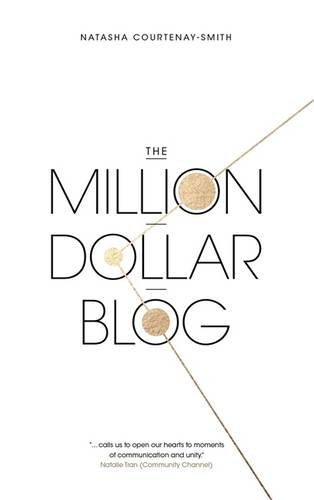 I am delighted to be a part of the blog tour for The Million Dollar Blog which is a new how to practical guide for people who want to build a successful blog and is written by Natasha Courtenay-Smith.
I am delighted to be a part of the blog tour for The Million Dollar Blog which is a new how to practical guide for people who want to build a successful blog and is written by Natasha Courtenay-Smith.
About The Million Dollar Blog: In a world where everyone wants to blog and blog posts are ubiquitous, how do you stand out? How do you blog your way from nobody to somebody?
How do you make money blogging, how do you start your own blogging business, and how do you, as a business owner, use content to build your brand and drive your success?
Through a combination of practical advice and interviews with some of the world’s most famous and successful bloggers, vloggers and content strategists, including Seth Godin, Lily Pebbles, Grant Cardone and Madeleine Shaw and dozens more, entrepreneur and digital strategist Natasha Courtenay Smith shows you how to build a blog that will increase your profile, create new opportunities, earn money and change your life.
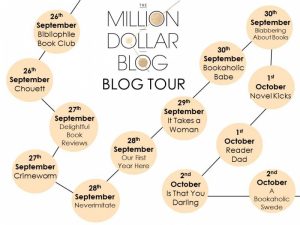 For this blog tour, I’ve been invited to talk about my journey into blogging. I have to admit, when I first started, the idea of blogging terrified me. In some ways it still does.
For this blog tour, I’ve been invited to talk about my journey into blogging. I have to admit, when I first started, the idea of blogging terrified me. In some ways it still does.
I began Novel Kicks back in August 2009. I can’t quite believe I have been blogging for that long. It originally began as a forum for myself and fellow writers to talk about writing and to post work.
That is still the fundamental principle of my site but it’s also evolved into a place that has all my favourite things. I love writing stories, I love escaping into books. Everything I post on Novel Kicks is something that I am very interested in. This blog is very personal to me and above all, even after seven years I am still enjoying building it up. This is a lot of my passions in one place.
When interviewing authors, I try and keep the questions fun but I also want to ask them how they approach the writing and editing process. As a new writer, these are pieces of advice I find most helpful and I hope other people do too.
 I’m happy to be welcoming a fellow Laura to Novel Kicks today. Author, Laura Briggs talks about Self Publishing vs. Traditional Publishing and the pros and cons of each. Over to you, Laura.
I’m happy to be welcoming a fellow Laura to Novel Kicks today. Author, Laura Briggs talks about Self Publishing vs. Traditional Publishing and the pros and cons of each. Over to you, Laura.
First of all, thanks to Laura for inviting me to appear on Novel Kicks with a post on self-publishing vs. traditional publishing. I’ve learned a little about both in recent years and hope my experiences may prove useful to some of you reading this.
Let me start by saying that my publisher, Pelican Book Group, is nothing less than excellent. I love working with them and plan to submit more manuscripts to their company in the future. I also love self-publishing and am grateful to have the opportunity for both.
Now—let’s get to some pros and cons on publishing!
The Pros of Traditional Publishing:
•Professional Editing: This is an obvious one, but I can’t stress it enough. Freelance editors cost a few hundred on average, so yes, professional editing gives traditional publishing an edge.
•Professional Cover Design: Another obvious one, I know, but important. Not everyone has the software, or the know-how to make a good cover, even with so many high quality images available via sites like Dreamstime. The cover often serves as your book’s first impression, so it needs to be good.
•Professional Marketing: Let’s face it—marketing is tough. And hugely competitive. Book review bloggers are swamped with requests and even buying ad space from a popular service like Bookbub is difficult to achieve. Some publishing companies have better methods of getting your book out there. Some don’t. It depends on the publisher, and of course, even authors with a traditional publisher must still do some of their own marketing.
•It Has More Options Than Before: There are many small and up-and-coming publishers who will take unagented submissions from writers these days. There are even divisions of bigger publishing houses, like HarperCollins, I believe, that welcome unagented submissions. They may not pay author advances like big companies do, but some are quite generous on the royalties.
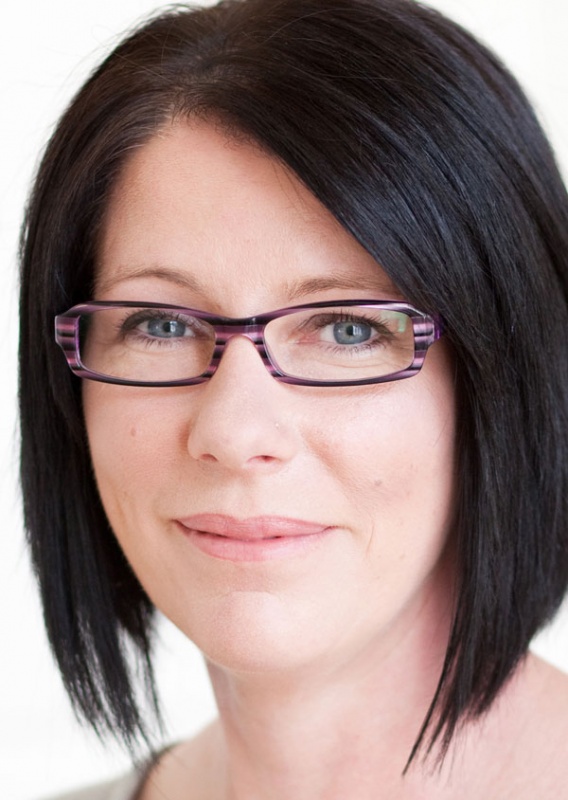 I’m pleased to be welcoming Vicki Wakefield to Novel Kicks today. Vicki is the author of the YA novel, Inbetween Days which was released by Text Publishing on 26th August.
I’m pleased to be welcoming Vicki Wakefield to Novel Kicks today. Vicki is the author of the YA novel, Inbetween Days which was released by Text Publishing on 26th August.
Jacklin Bates has life figured out – dropped out of school, moved in with her runaway sister, in love with an older boy. But why does she have a sinking feeling that she still needs her mum? Perhaps because she’s stuck in Mobius – a dying town with the macabre suicide forest its only attraction – stuck working in the roadhouse and babysitting her boss’s demented father.
Vicki, thank you for joining me today. Can you tell me about your typical writing day?
There are no typical days. I write when I feel like it, or when a deadline forces me knuckle down. It’s not that I don’t love writing, it’s just that I focus best when my slate is clean. I tend to deal with family, housework, bills, pets and life first, and then I breathe out. I can be epically productive or utterly paralysed. There’s no middle ground.
Do you have any writing rituals (coffee, silence?)
I’m terribly provincial. I can’t do cities, hotel rooms, libraries or cafes (I wish I could, but I either get distracted or lonely). I like to be outside; I like my dog under my feet. I prefer to write at night when everyone else is asleep, and I need tea, wine, chocolate or biscuits (not necessarily at the same time, but I’ve been known to go on a bender). I keep only one working file, so any changes are lost forever (I’m told this is the equivalent of base-jumping, but to me it’s a superstition, like wearing your lucky stinky socks for every game).
Do you edit as you go and plan much prior to beginning a book?
I’m always thinking about a new book long before I finish working on my current one, so the planning can take place years before I write a single word. I keep notebooks filled with random ideas and drawings to help me get to know the world and the characters, and I’ll usually have my opening paragraph perfected before I open a new document (the blank page scares me). Planning in advance helps me to decide whether a story has legs, and drawing helps me to refine my characters before I begin. That said, I’m not a plotter. I trust that the story will take me where it needs to go. I do edit as I write the first draft (against most advice on writing first drafts). It’s my way of feeling out the story. My ideas change so often and so unexpectedly that I worry the novel would be unfixable if I ignored my instincts and tried to write through.
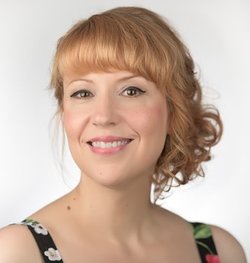 I’m very happy to be welcoming Lenora Bell to Novel Kicks today and her blog tour for the latest novel in the Disgraceful Duke series, If I Only Had a Duke which is due to be released by Piatkus on 30th August 2016.
I’m very happy to be welcoming Lenora Bell to Novel Kicks today and her blog tour for the latest novel in the Disgraceful Duke series, If I Only Had a Duke which is due to be released by Piatkus on 30th August 2016.
After four failed seasons and a disastrous jilting, Lady Dorothea Beaumont has had more than enough of her family’s scheming. She won’t domesticate a duke, entangle an earl or vie for a viscount. She will quietly exit to her aunt’s Irish estate for a life of blissful freedom. Until an arrogant, sinfully handsome duke singles her out for a waltz, making Thea the most popular belle of the season.
Well, the duke ruined her plans and now he’ll just have to fix them.
Dalton, Duke of Osborne, is far too heartless for debutantes or marriage – he uses dalliances to distract from his real purpose: finding the man who destroyed his family. When his search leads to Ireland, the last thing he needs is the determined, achingly innocent Thea, who arrives in the dead of night demanding he escort her to her aunt. His foolish agreement may prove his undoing. The road to the Emerald Isle is fraught with unforeseen dangers, but the greatest peril of all might just be discovering that he has a heart . . . and he’s losing it to Thea.
I’ve reviewed the book below but first, I’ve had a chat with Lenora. Hi Lenora, thank you so much for joining me today. First, can you tell me a little about your typical writing day and how many words you aim to write on a daily basis.
Hi Laura! Thanks for having me here at Novel Kicks! I see you have a cat named Buddy. Every writer should have a cat, don’t you think? They’re such good companions for long writing sessions. They just curl up and sleep to the sound of your clicking fingers on the keyboard as if it were rain pattering on a tin roof. (Yes, Lenora, I totally agree!)
Writing for me is both agony and ecstasy. There is a certain amount of slogging through the trenches that needs to happen before the words on the page learn to fly. A typical writing day for me means churning out extremely rough stream-of-consciousness pages and then spending three times as many hours trying to wrestle those rough pages into something fit to be seen by other eyes. I may have ten rough pages and only produce one edited page *sigh*. But when things go right there truly is no better feeling.
Do you have any writing rituals (plenty of coffee, writing in silence etc?)
Coffee, of course! Absolutely necessary for those late night writing binges. I find what helps me the most to focus on the emotional heart of scenes is to do some yoga and light a candle before I write, and then stop every hour or so and take a quick yoga break. It helps me focus as well as helps stretch all those cramped writing muscles.
Your new book, If I Only Had a Duke is the second in the Disgraceful Duke series. Can you tell me about it?
I’m so excited about this book! It’s the second in the Disgraceful Dukes series and is loosely inspired by the Wizard of Oz. If you read it with that in mind you’ll find subtle references throughout the novel. This is the story of Lady Dorothea Beaumont, who’s had more than enough of her family’s scheming and just wants to escape from London and live a quiet life as a spinster, and Dalton, Duke of Osborne, who uses public spectacle to distract from his true purpose—finding the man who destroyed his family.
How did you approach writing this novel in terms of planning and research?
I worked closely with my fabulous editor at Avon Books, Amanda Bergeron, on planning and plotting. Sometimes my plots tend to wander and she always reined me in and redirected me to the heart of the story. As for research, I read books and watched videos on everything from Regency-era traveling coaches, ships, and gaming hells to etiquette and recipes for trifle. It was tons of fun!
 Emma Bennet is the author of I Need A Hero, His Secret Daughter and Snowed in for her Wedding. Emma joins me today to chat about writing, planning her novels and her dinner party guests.
Emma Bennet is the author of I Need A Hero, His Secret Daughter and Snowed in for her Wedding. Emma joins me today to chat about writing, planning her novels and her dinner party guests.
Hi Emma, thank you for joining me. Do you have a favourite word?
I have several: pudding, serendipity and natty stand out as particularly wonderful to say. Actually, I managed to get ‘natty’ into my latest manuscript, a great moment!
How much planning do you do before beginning a book? What elements need to be in place?
I use an A4 notebook and write a basic outline over a page. I then expand on this over about three pages, and write short character profiles for my hero and heroine. I add to and refer to these sheets regularly! Once these are in place, I’m off!
Which novel would you like to live in for a day and why?
I think it’s got to be ‘Pride and Prejudice’: I’d love to chat with Lizzy, advise her mum on her nerves and dance with Mr Darcy!
Out of all the books you’ve read, which three have stayed with you?
It tends to be children’s books which stay with me the most. I absolutely love being able to share my favourites with my children. The top three would probably be Enid Blyton’s The Enchanted Wood, Noel Streatfeild’s Ballet Shoes and Catherine Cookson’s Nancy Nutall and the Mongrel (which never fails to make me cry!).
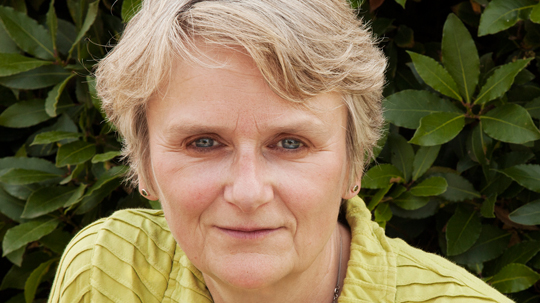
Lesley Thomson
I’m pleased to be welcoming author Lesley Thomson to Novel Kicks today. Hi Lesley. Could you tell me a little about your typical writing day?
Hi Laura, great to be here.
My day starts at 6.45am when I walk the dog. In summer this is a lovely part of the day, with the sun shining on the ruins of the Priory behind our house and the grass lush and green. I know the other walkers who are out at that time and feel lucky to have such interesting conversations before breakfast. In the winter in the wet and dark, togged in waterproofs from head to foot with a torch strapped to my forehead, it’s more of an expedition.
I start work at 8.30 and break for coffee at 11am. I work until 1pm. If it’s a first draft then – after lunch and a longer walk with my dog – I do research. This is reading books and articles and taking notes. Perhaps setting up interviews. If I’m further on in the novel, I’ll continue redrafting until about 5pm.
Can you tell me a little about your book, The House with no Rooms and how the idea originated?
The House with no Rooms is a murder story set in Kew Gardens in the hot summer of 1976 and in 2014. Jack and Stella follow a series of clues to uncover a terrible secret that is forty year old.
I visited the Marianne North gallery in Kew Gardens. A 19th Century botanical artist, North painted plants and flowers on her solo expeditions around the world. There are 833 numbered pictures hanging in what looks like a house. My character Jack sees numbers as signs that dictate his actions and hold clues he must decipher. The story features the Palm House, the Queen’s Beasts and the Herbarium that stores thousands of dried specimens collected over two centuries. They are called ‘dead materials’. Add to this that the botanist’s chief tool of trade is the scalpel and I realised that the Botanical Gardens was the perfect place to set a scary crime novel.
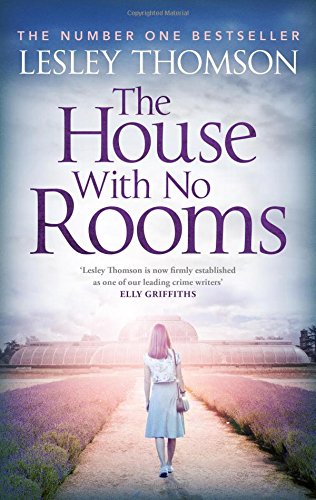
Head of Zeus, April 2016
Do you have any writing rituals (needing coffee before you begin? Writing in silence etc.)
Yes, as I mentioned earlier, I have coffee at 11am. I drink out of a particular mug that I only use for work. I take the dog for walks at about the same time every day. While I work, I play Radio 3 although I like silence too. All this is less about superstition, I have found that a combination of ritual and routine gets me get into story and keeps me writing.
If you were only allowed to own three books, which three would you pick?
These would keep me going. I would need nothing else,
Our Mutual Friend by Charles Dickens
Excellent Women by Barbara Pym
The Moonstone by Wilkie Collins.
Is there a fictional character you’d like to meet and why?
There are two. As an adult, I’d like an introduction to Sergeant Cuff in The Moonstone. He has a quiet ego, he knows he’s good at his work, but is prepared to be wrong. But of course he isn’t. He’s professional, honest, unflurried and gives people careful attention. He has a great sense of priority. What matters most to him is to grow roses. I’d love to have tea with him in the garden in Dorking that he moved to after he retired. I’m sure I’d come away wiser.
As a child, I wanted to meet Lucy in The Lion, The Witch and the Wardrobe. She is passionate, honest and brave. Actually I’d still like to meet her.
What advice do you have for someone who is thinking of or in the processes of writing a book?
A writer is privileged to live in more than one world, their fictional world and the ‘real’ one. Sometimes I find the former more real. Two bits of advice, if you’re writing a novel, keep going until the end. Then you’ve got something to work with. If you’re contemplating writing, stop contemplating and start! Never wait for the muse to strike because it tends to strike when words are already on the page, not when the page is blank. And as I said earlier, you might see if it helps you to establish a routine. Above all, keep going.
How do you approach the writing process? Do you plan much, edit as you go?
I have the idea and write a synopsis. Then I plan out the novel chapter by chapter. I consider what research will be needed. This might be interviewing experts in their field. For The House With No Rooms I talked to botanists, a botanical illustrator and the ex Met Detective Superintendent and District line driver who have helped me with the Detective’s Daughter series. I walk the places in my novels. The House with no Rooms demanded lots of visits to Kew Gardens, poor me… I start the research after I’m half way through a draft when I know what questions to ask.
I write a first draft, ploughing on without editing even if I’m not happy with it. Then I do another draft, editing, refining and rearranging scenes to ensure they work. By the time the novel is published I have completed at least six drafts.
What’s your favourite word and why?
Contentment. It is suggests satisfaction with one’s life and in the moment. I imagine I would feel contentment sipping tea in Sergeant Cuff’s country garden with the scent of roses on the summer air.
 More about Lesley:
More about Lesley:
Lesley Thomson grew up in London. Her first crime novel A Kind of Vanishing won The People’s Book Prize in 2010. The Detective’s Daughter is a number one bestseller and Sainsbury’s ebook for 2014. Ghost Girl, the second in the The Detective’s Daughter series (2014) went to number one in Sainsbury’s e-chart and is another bestseller. The Detective’s Secret was published in 2015. The Runaway, an eBook short about Stella Darnell (the detective’s daughter) came out in July 2015 and the fourth in the series, The House with No Rooms in 2016.
For more information about Lesley, visit http://lesleythomson.co.uk
 I am pleased to be welcoming Liz Nugent to Novel Kicks today and the blog tour for her new book, Lying in Wait.
I am pleased to be welcoming Liz Nugent to Novel Kicks today and the blog tour for her new book, Lying in Wait.
‘My husband did not mean to kill Annie Doyle, but the lying tramp deserved it.’
Lydia Fitzsimons lives in the perfect house with her adoring husband and beloved son. There is just one thing Lydia yearns for to make her perfect life complete, though the last thing she expects is that pursuing it will lead to murder. However, needs must – because nothing can stop this mother from getting what she wants …
I’ve reviewed the book below but first, Liz chats to us about her approach to writing psychological thrillers. Over to you, Liz….
I have always been interested in the psychology of killers. What makes them tick, how they deal with the horror of what they have done. Two books which were hugely influential were John Banville’s The Book of Evidence and Sebastian Faulks’ Engleby. Both were first person narratives about deeply flawed men.
I used to work on a TV soap opera and one day in a story meeting, we were discussing a character who had just killed somebody and I insisted that he must be extremely distressed and I said ‘You know the way when you dream you’ve murdered somebody and you wake up in the horrors?’ Everyone just stared at me and that was when I realised that I was the only one who had those nightmares. I kill people in my sleep!

In real life, I am a pacifist and actively avoid confrontation, so I’m not sure from where this murderous side of my psyche comes, but I hope it has given me an edge when writing from the point of view of murderers!